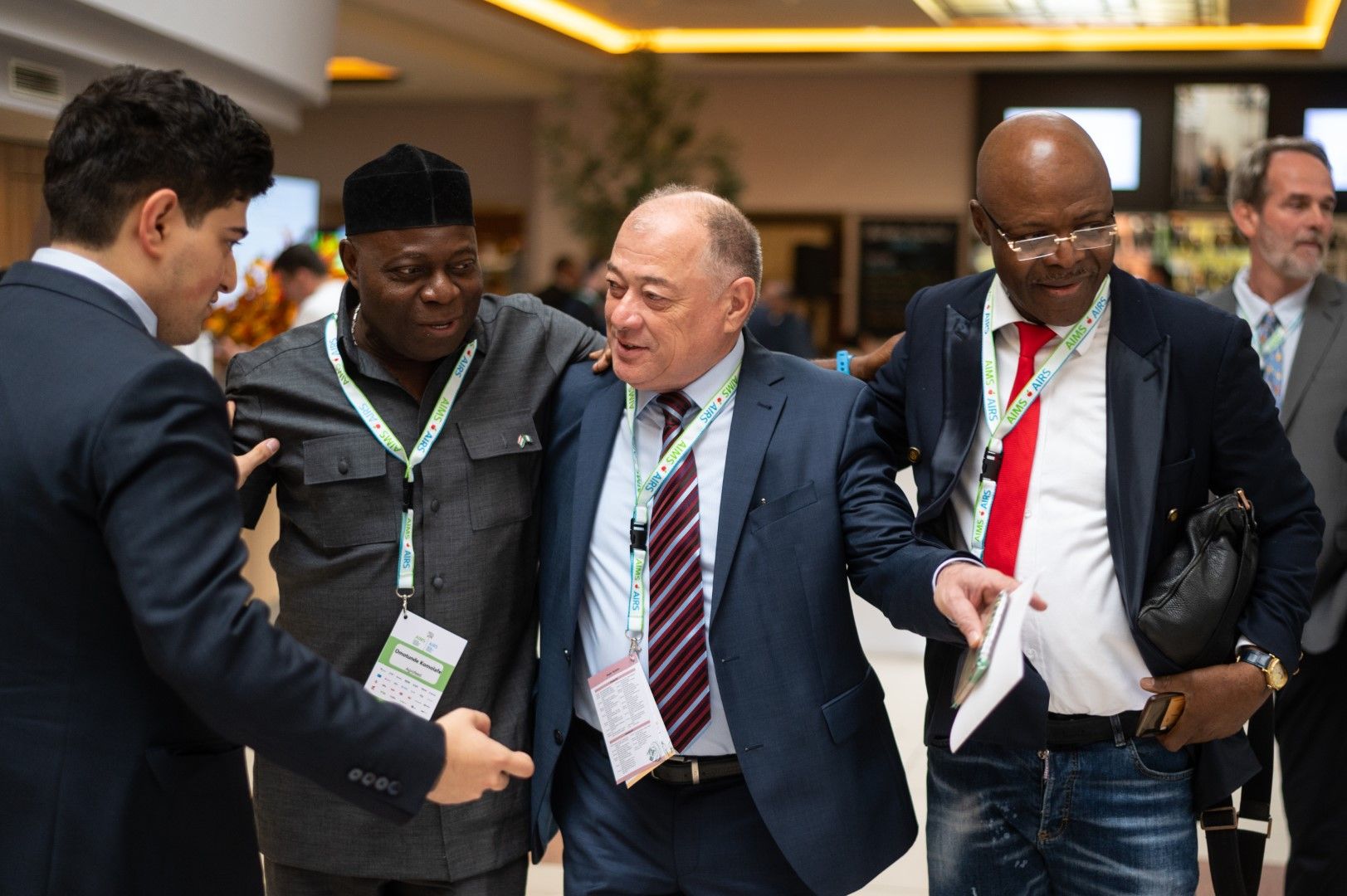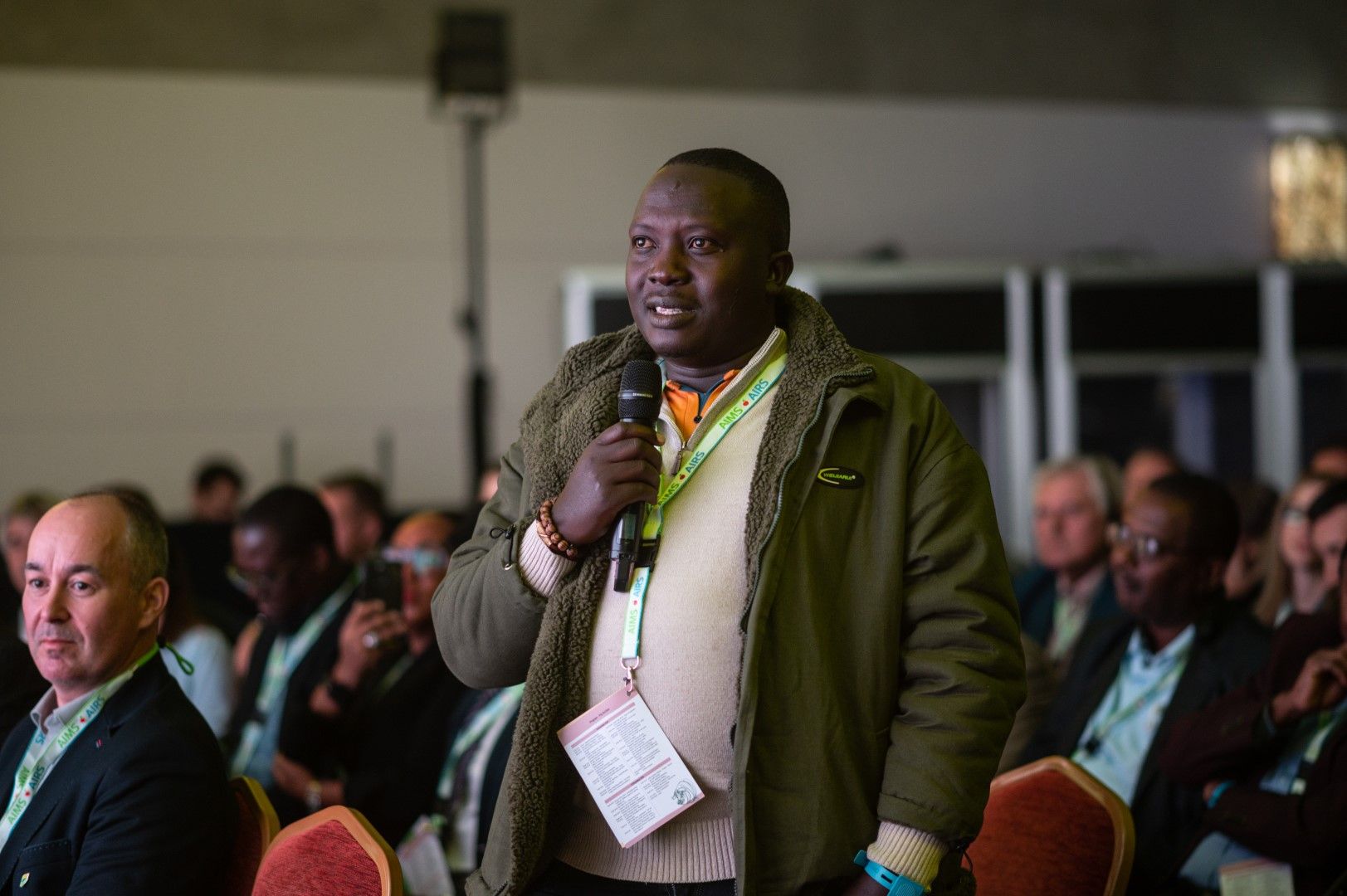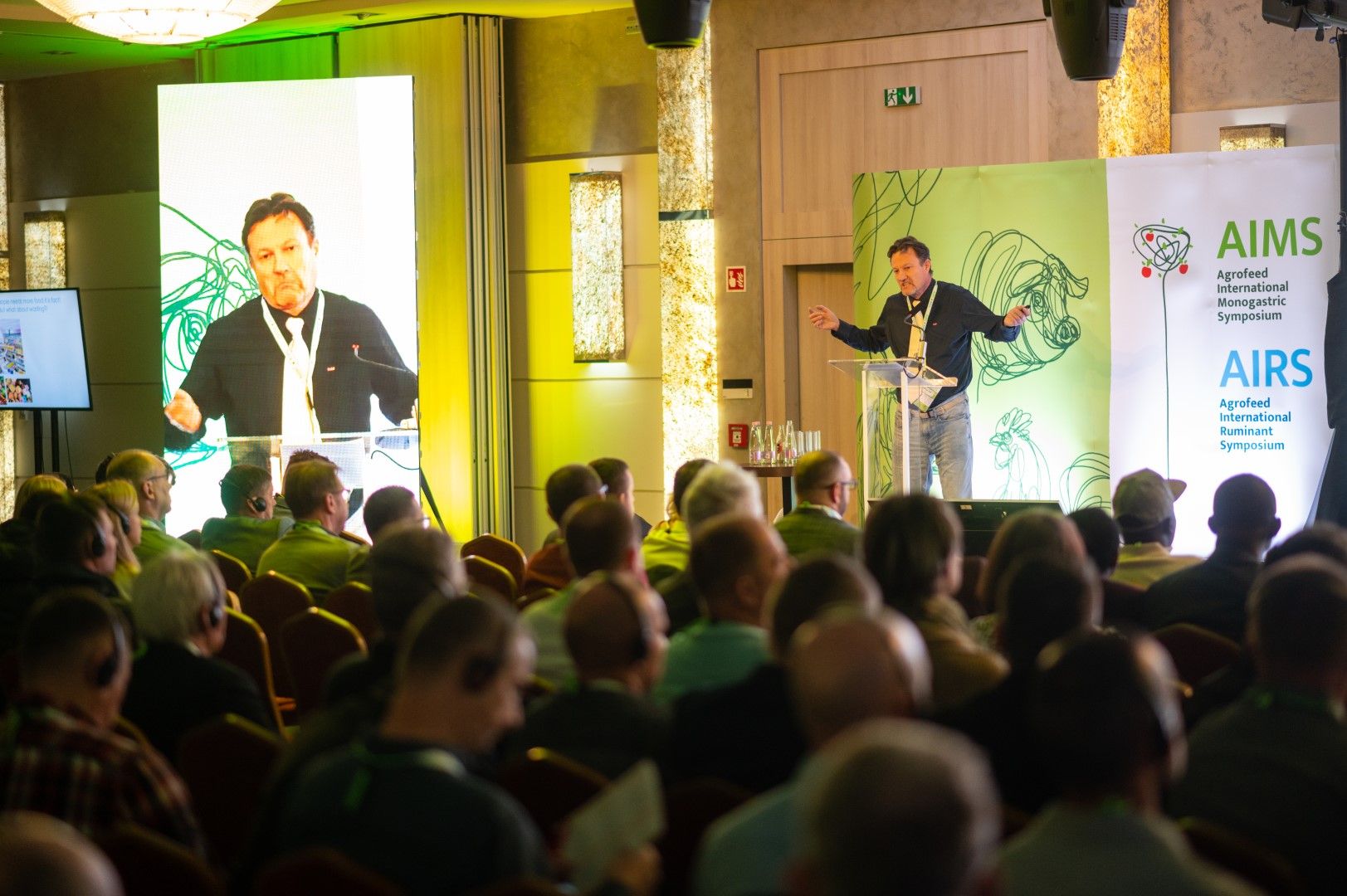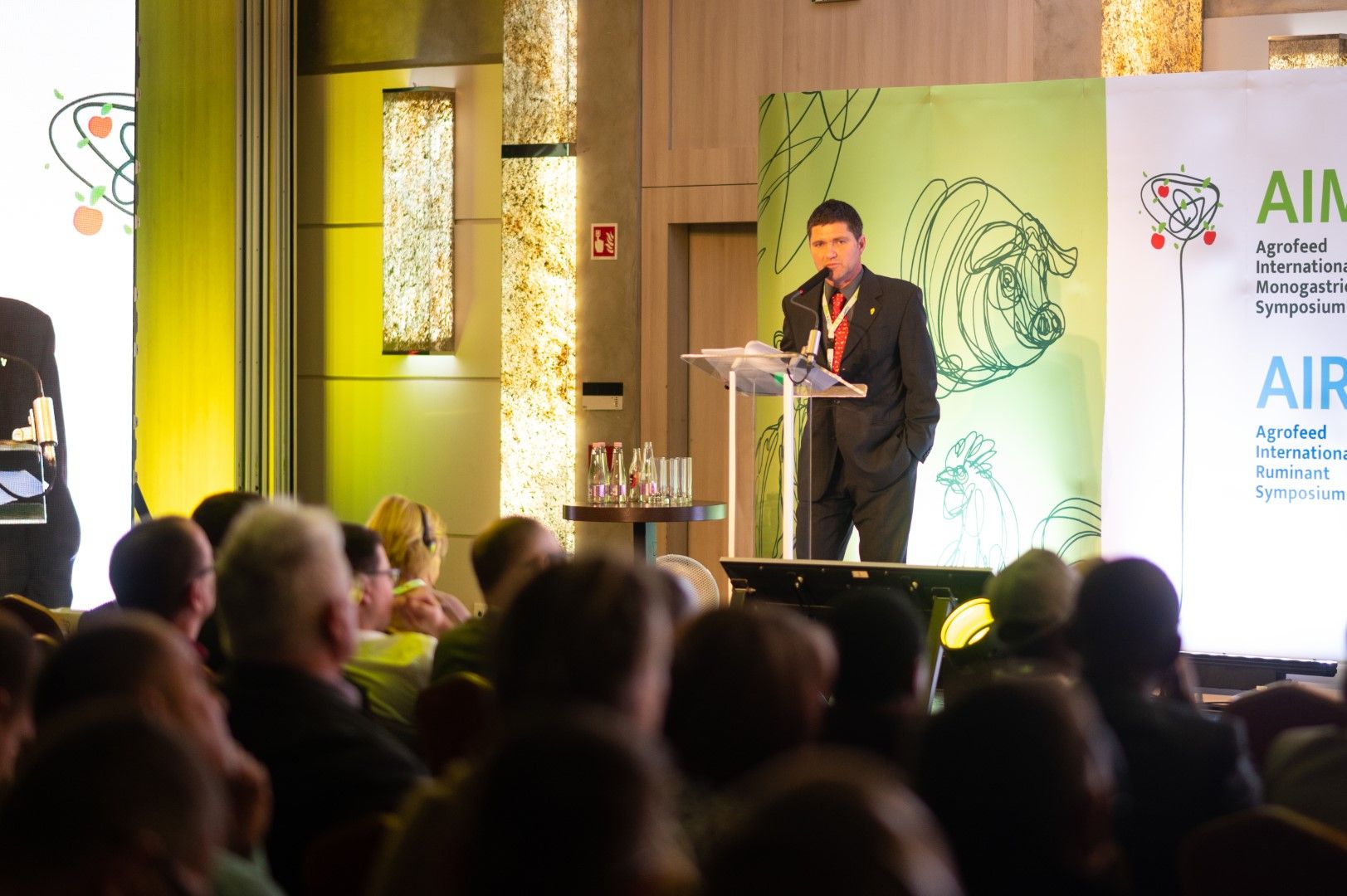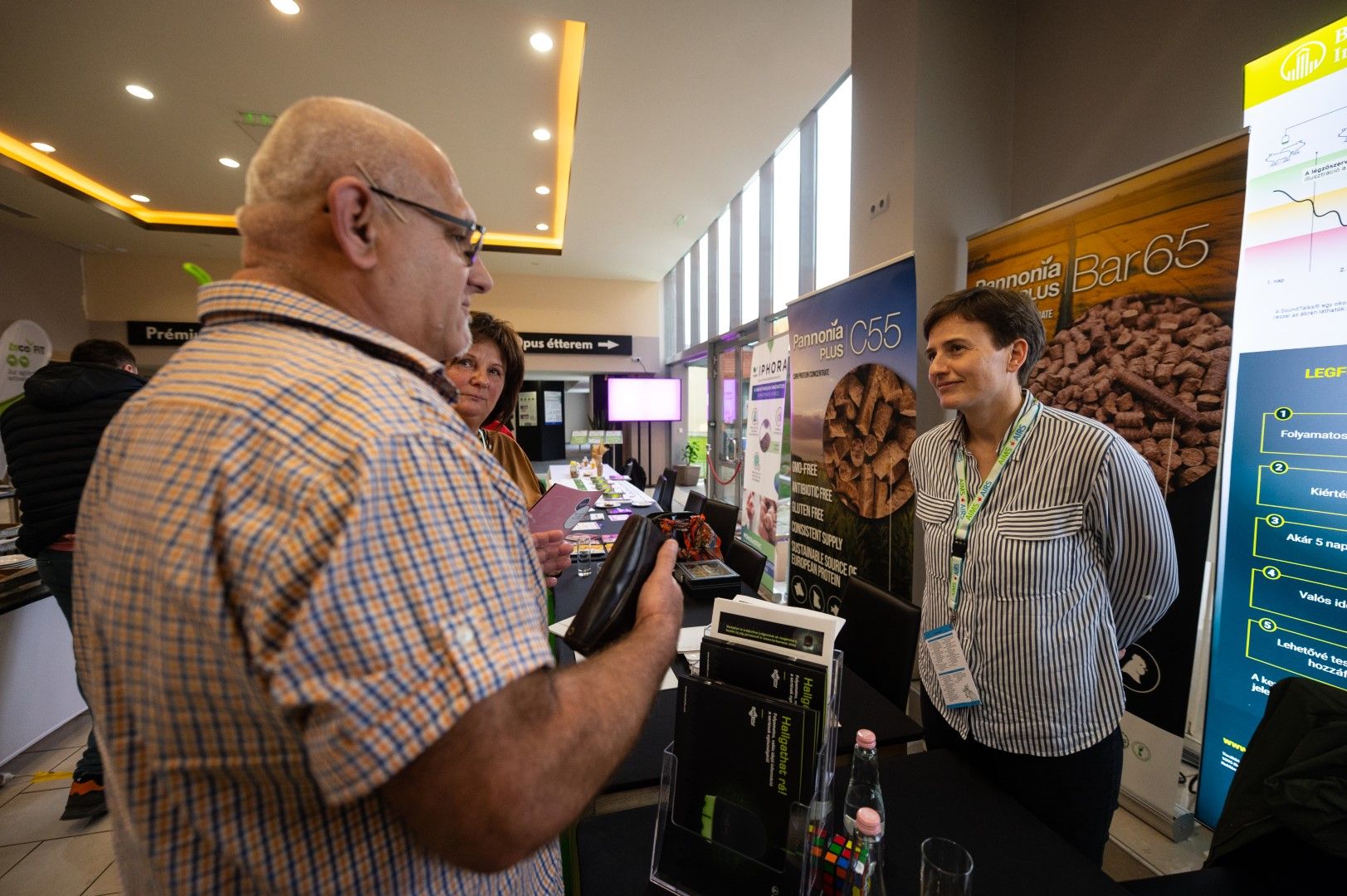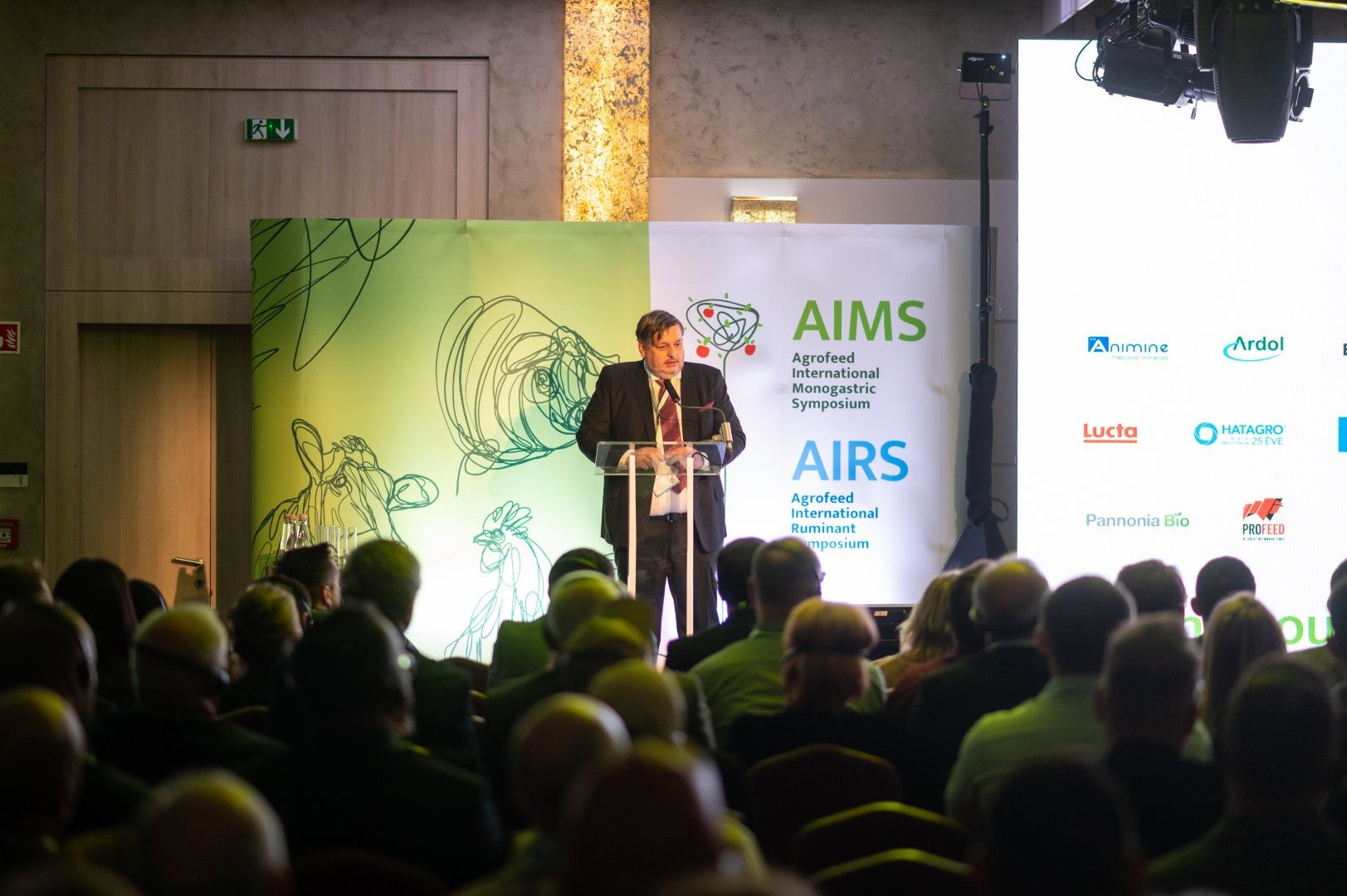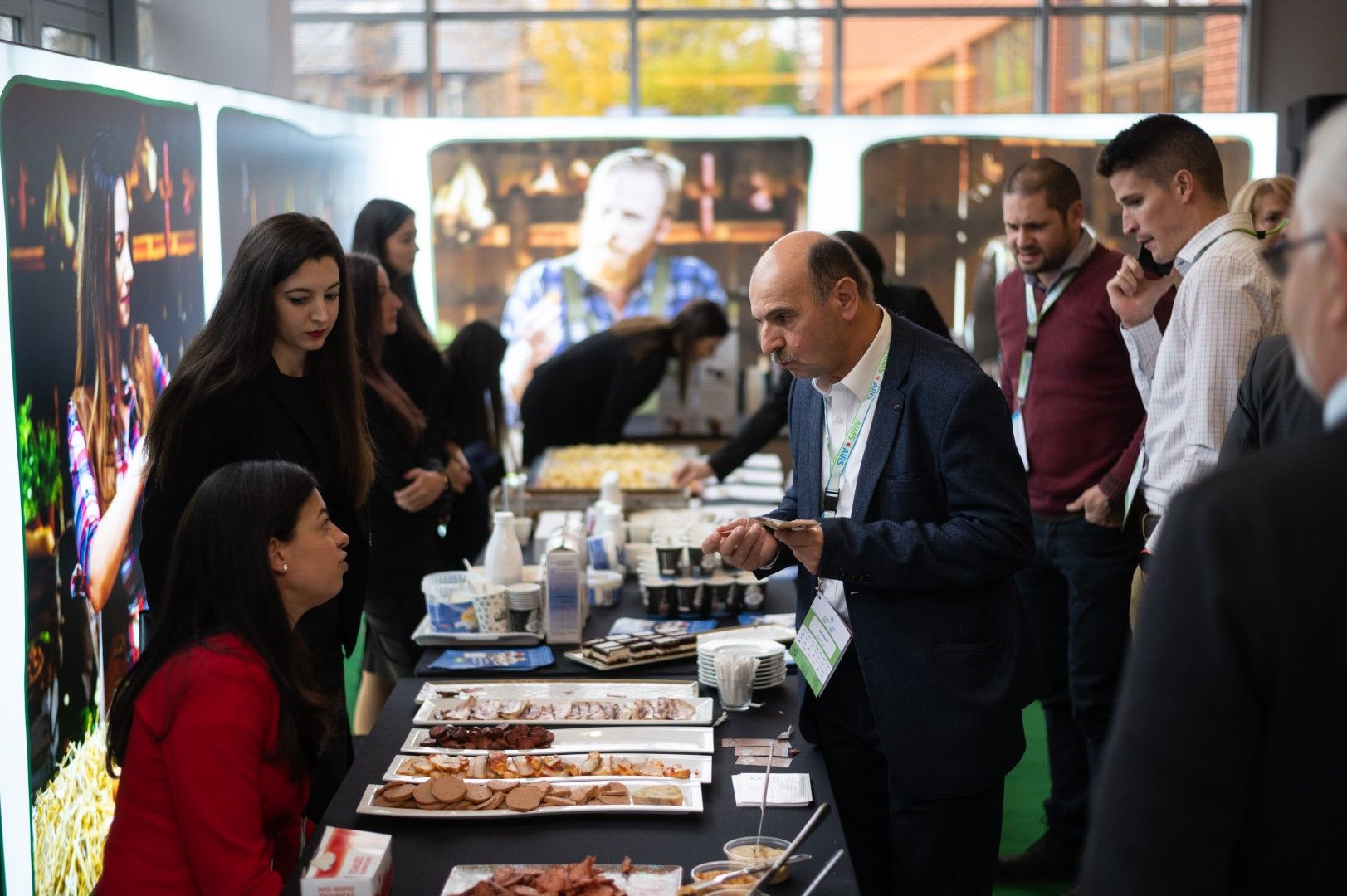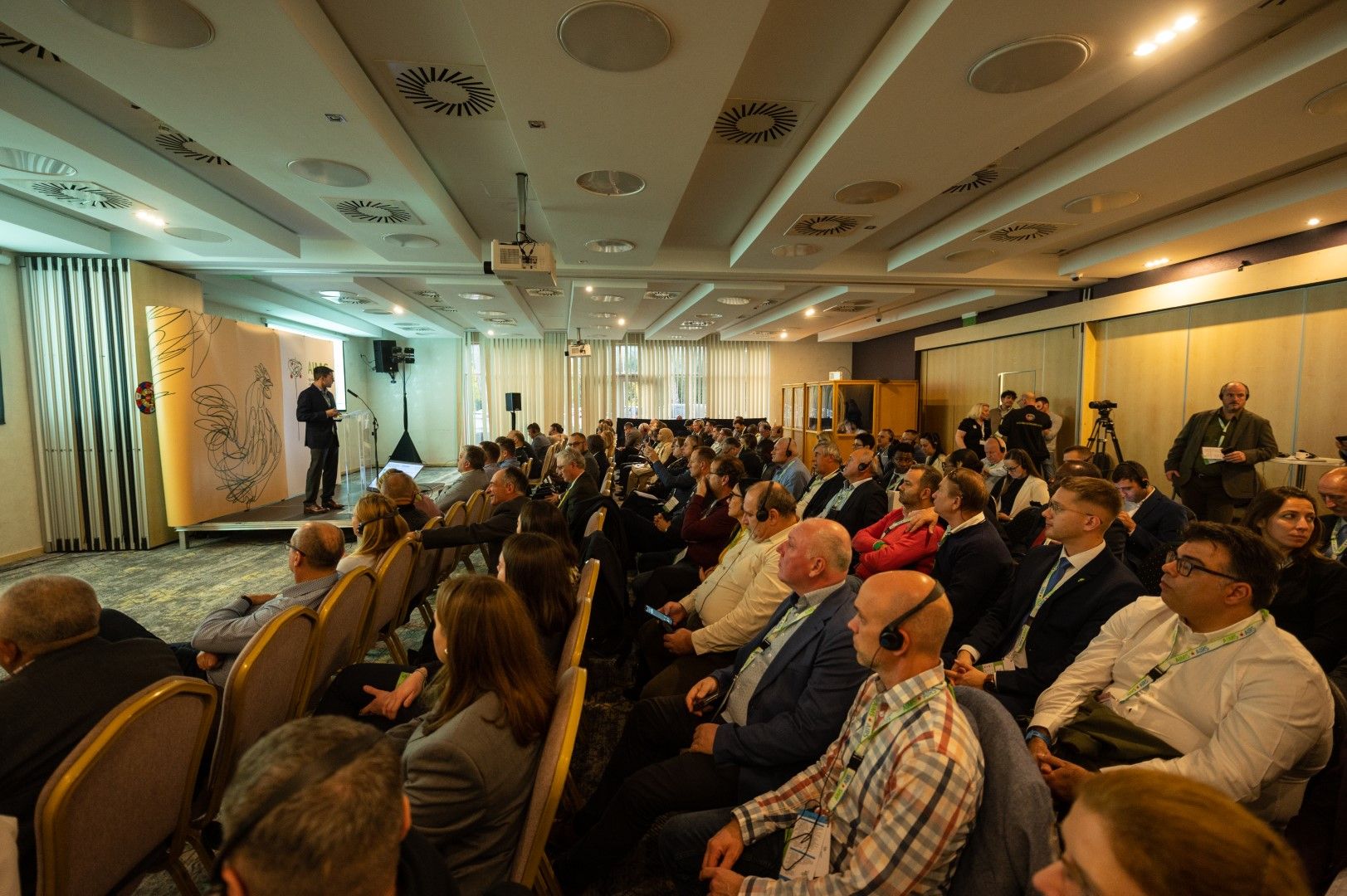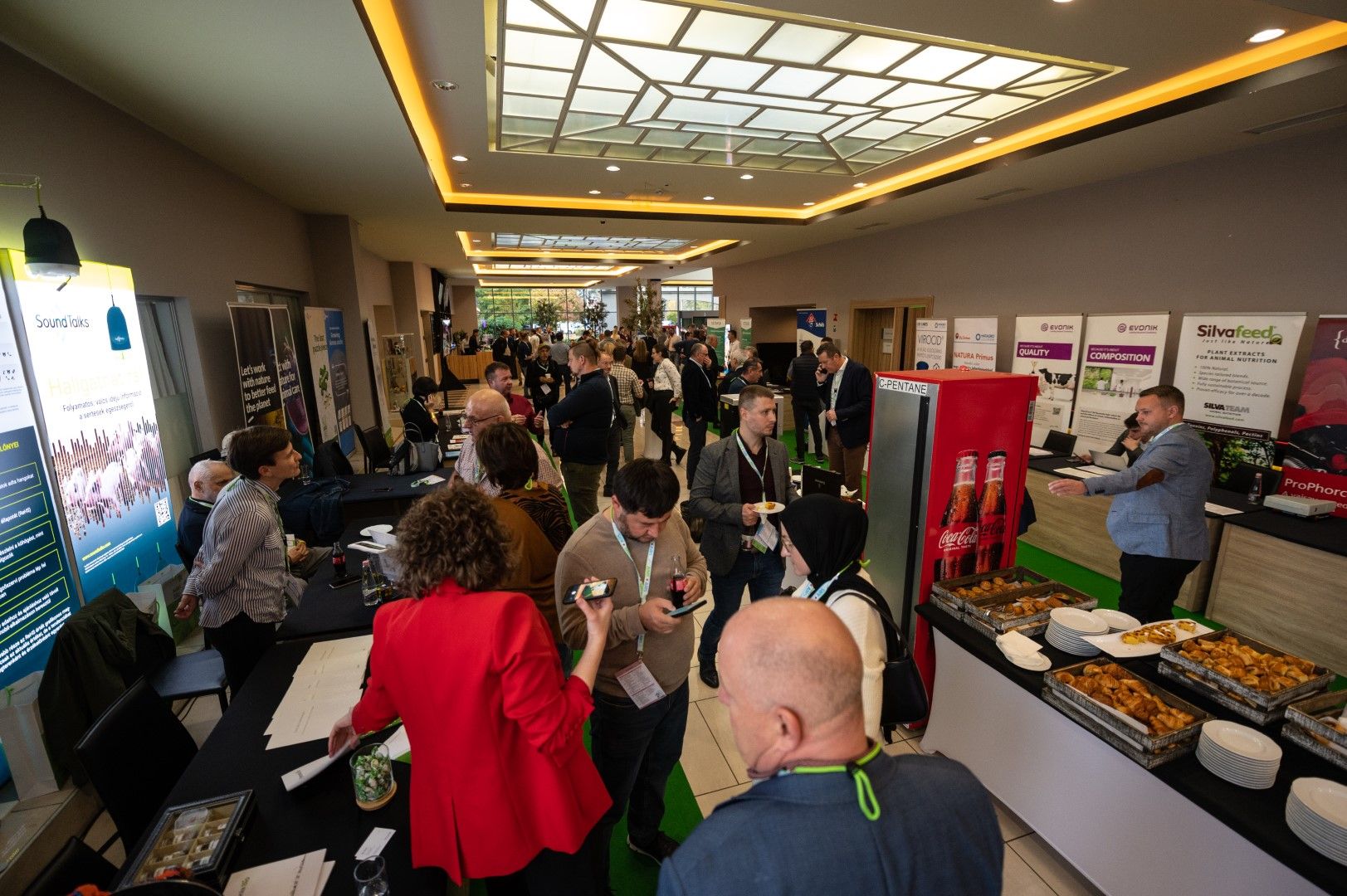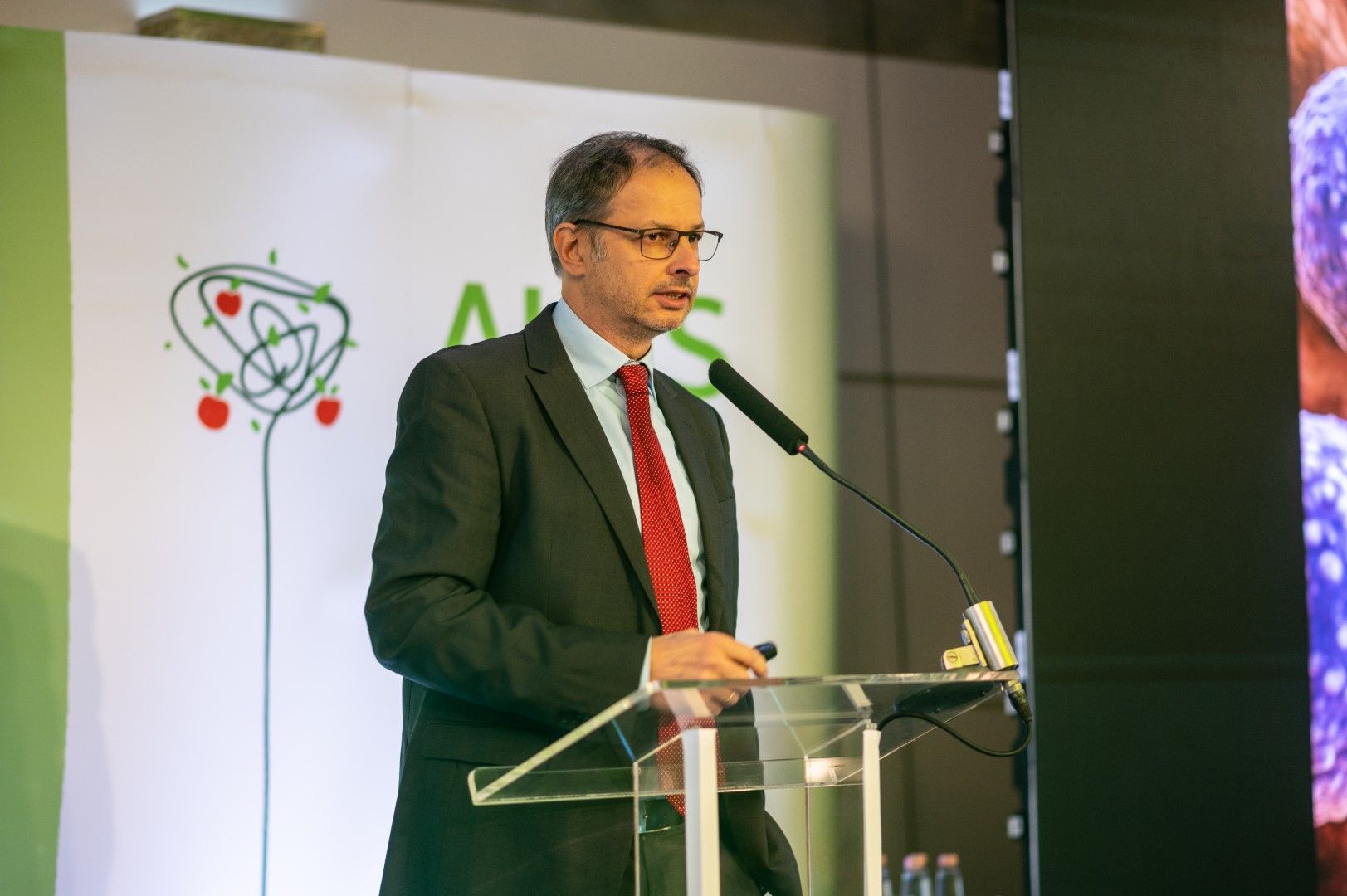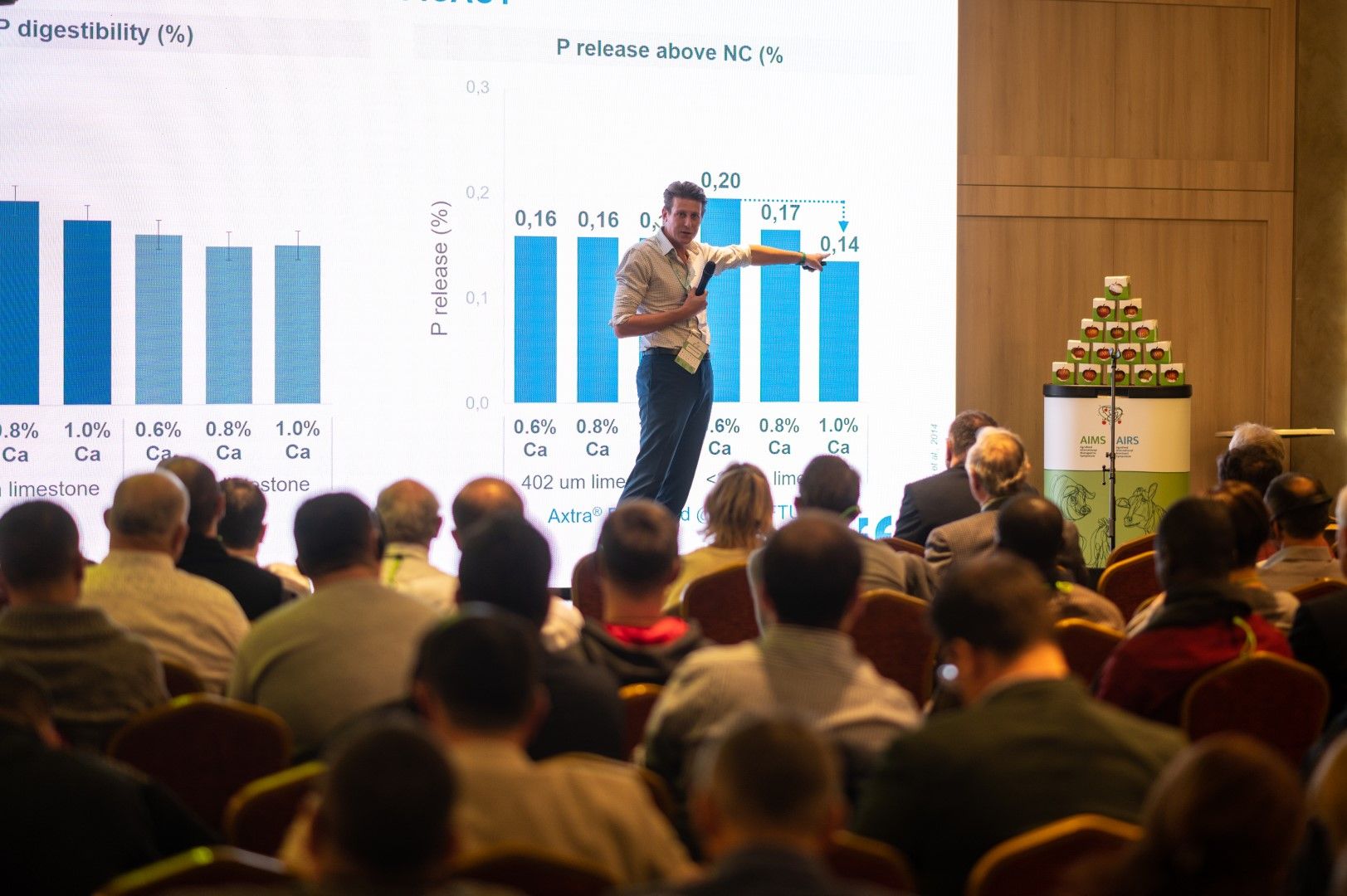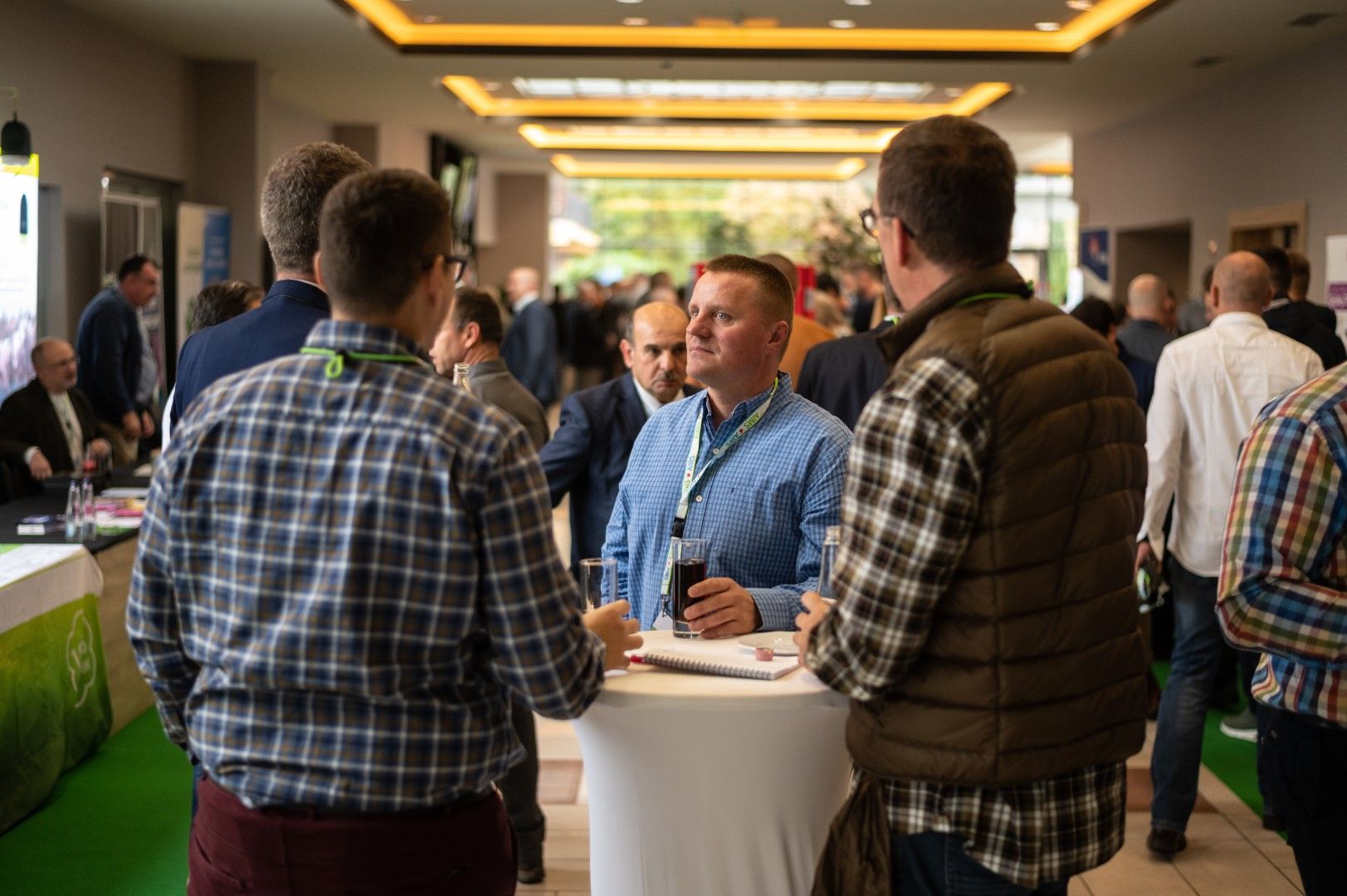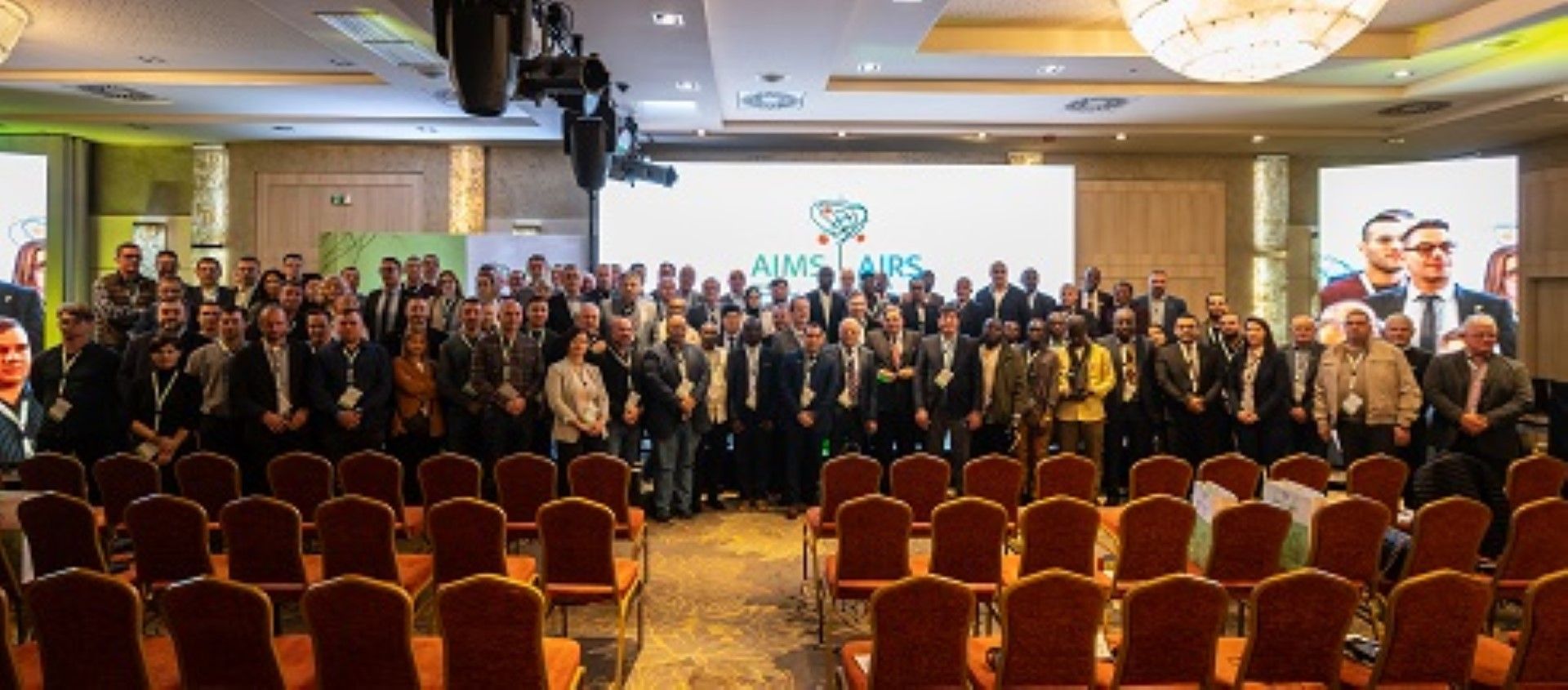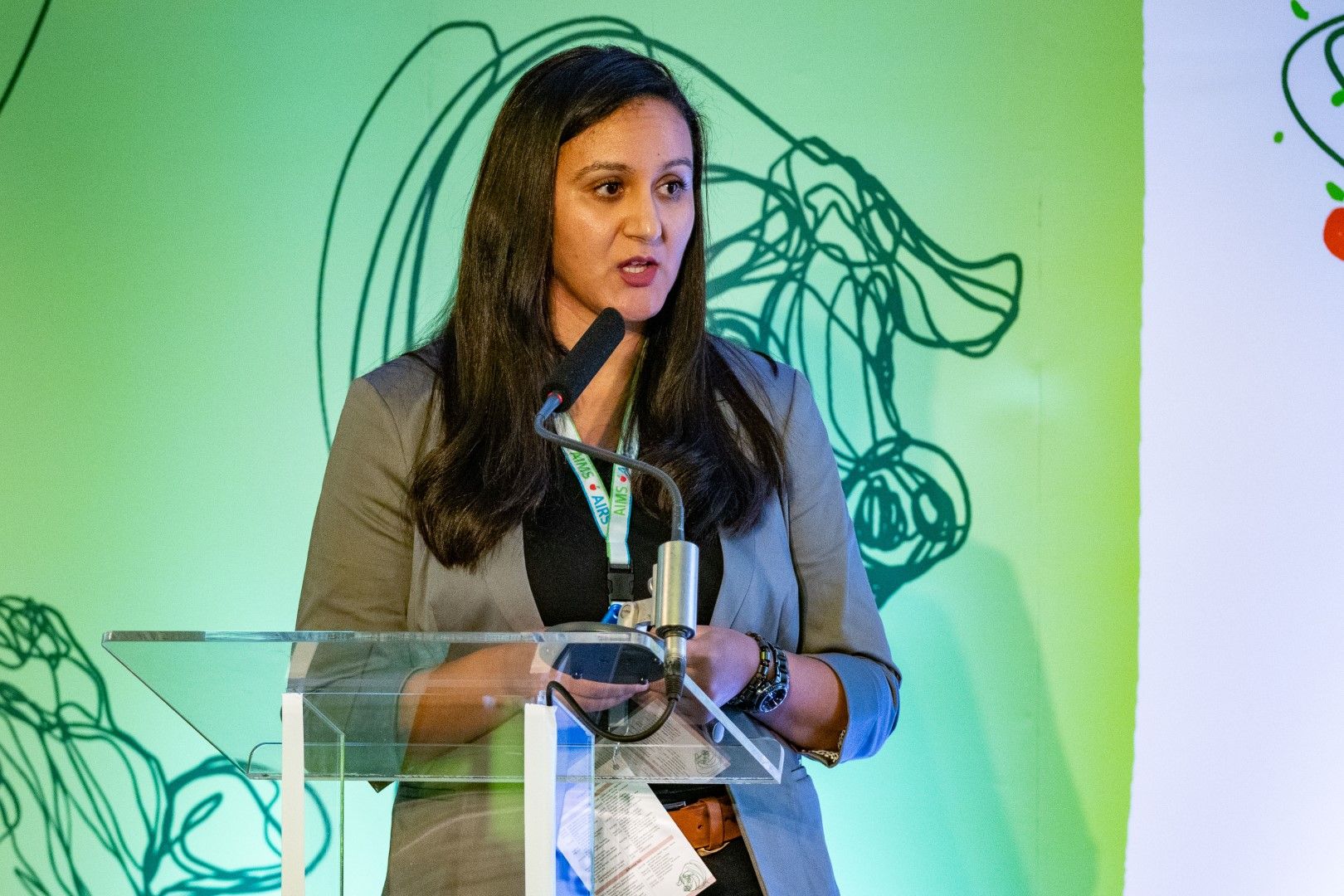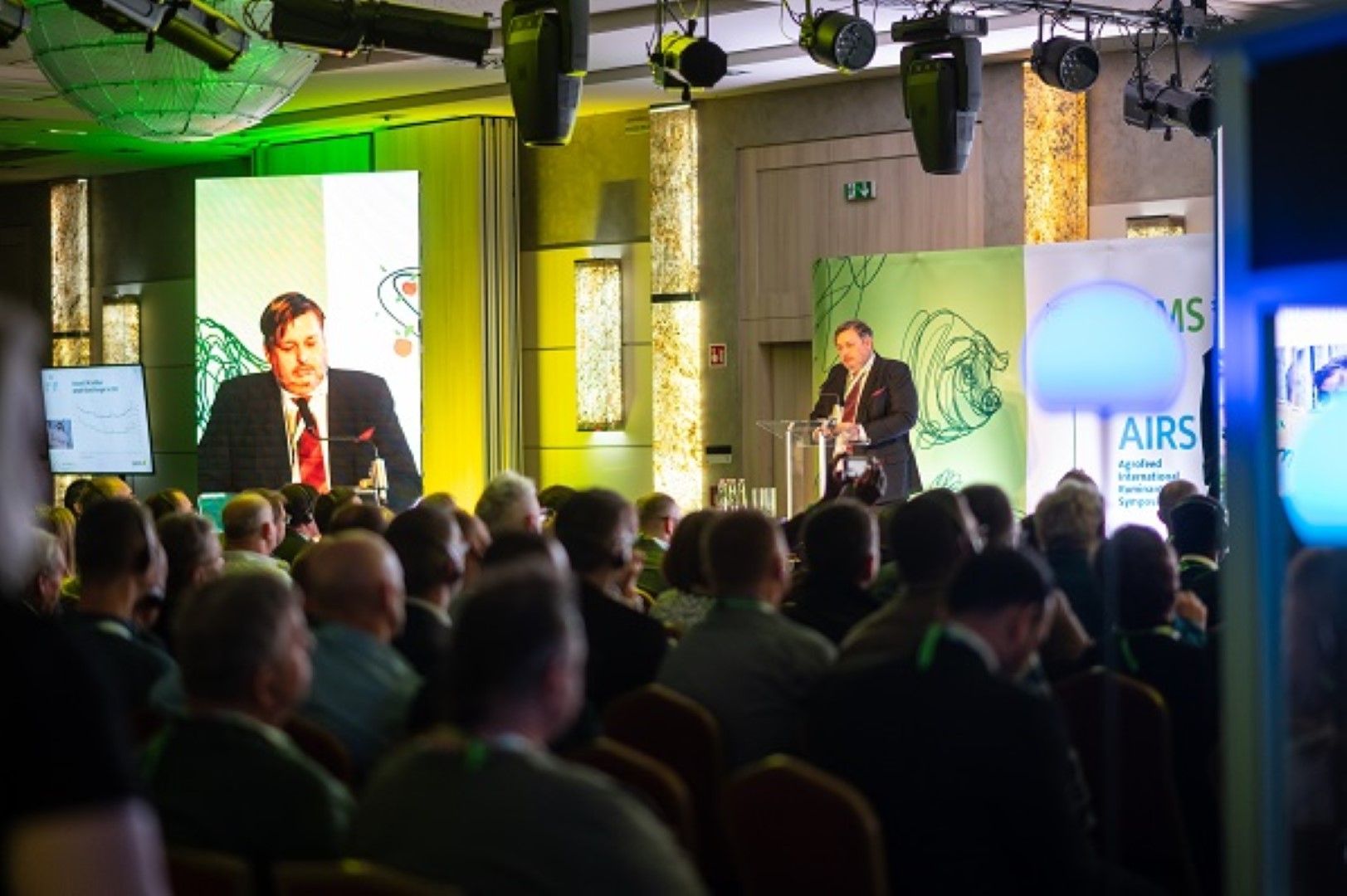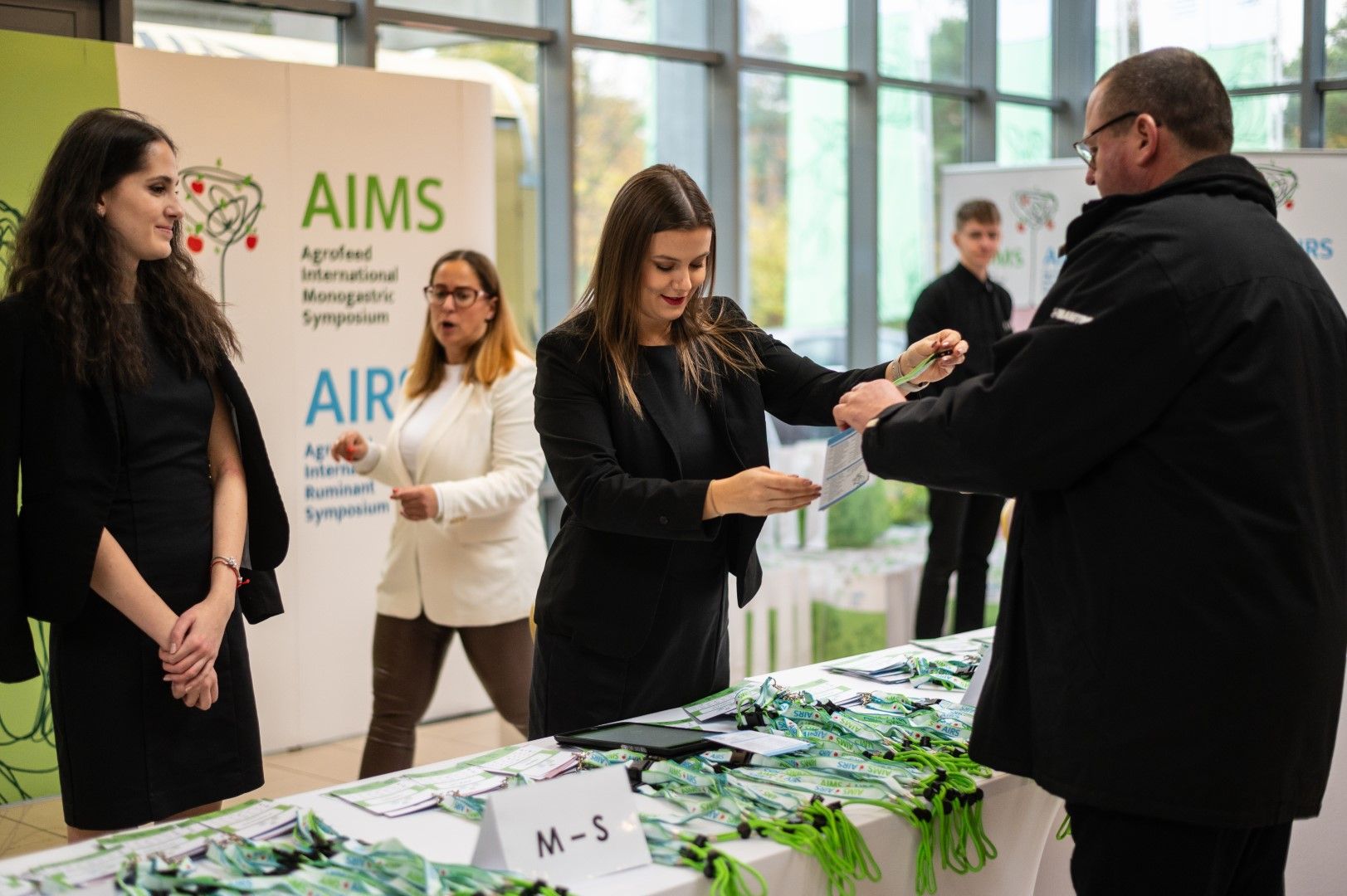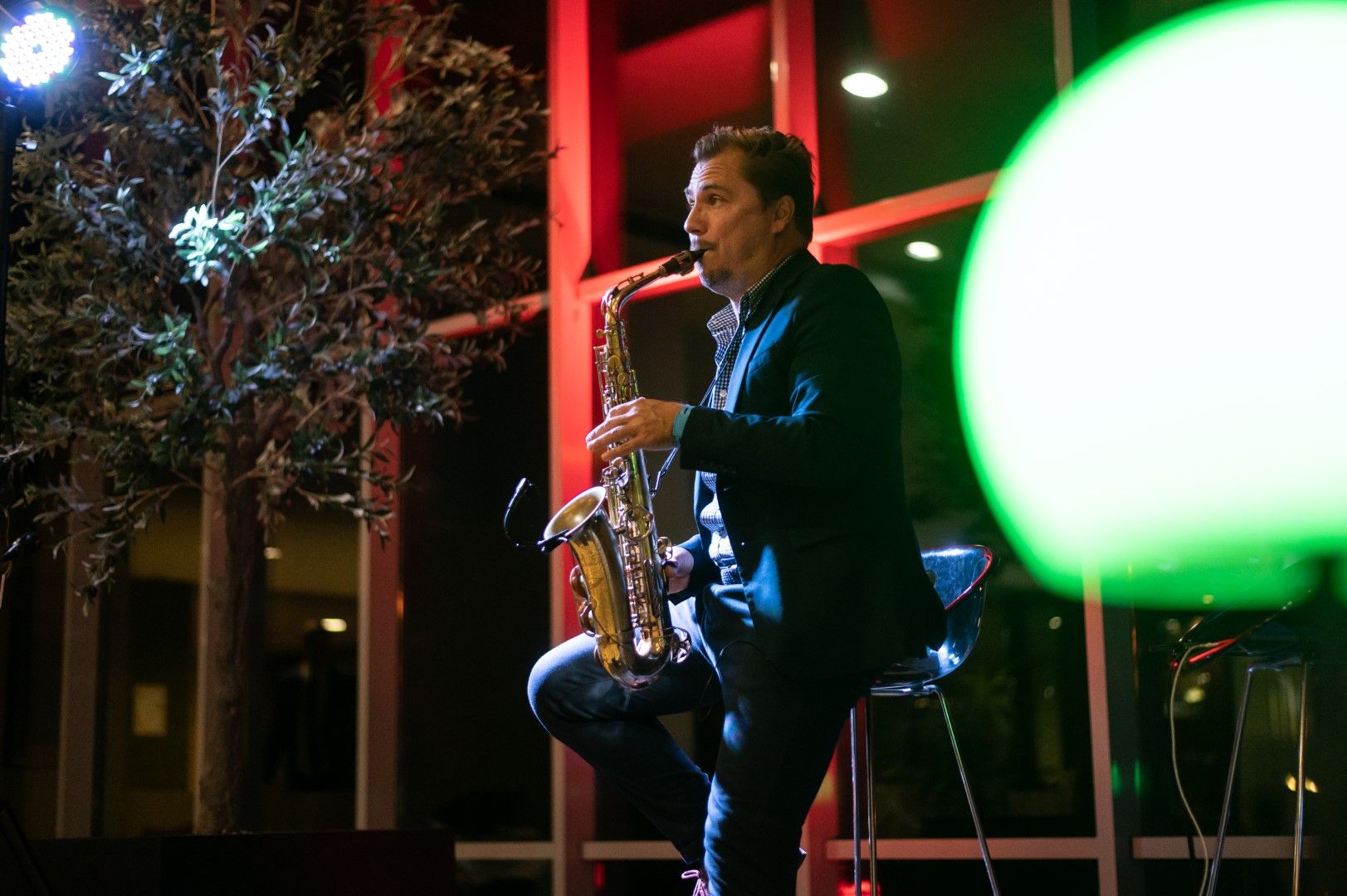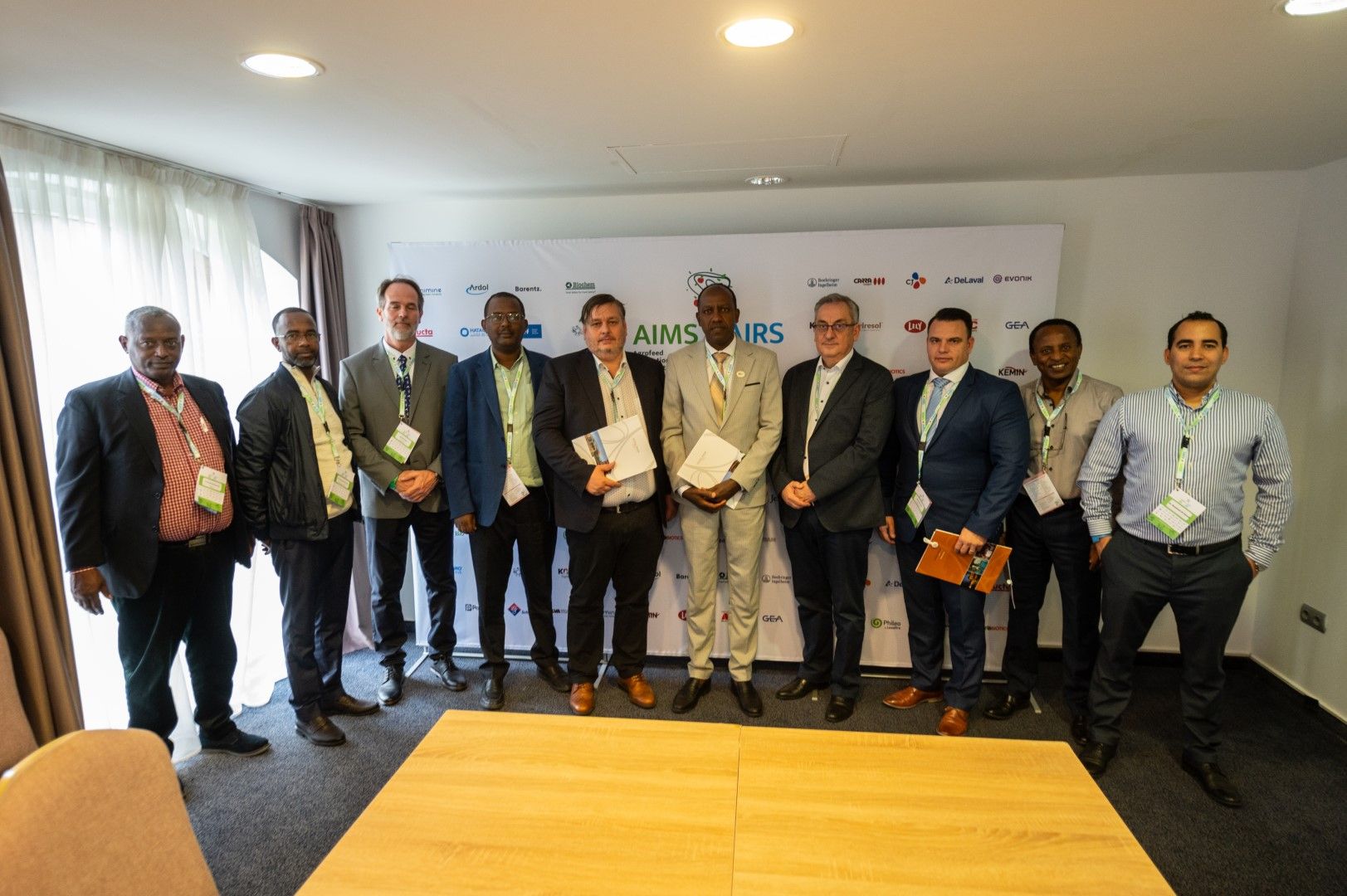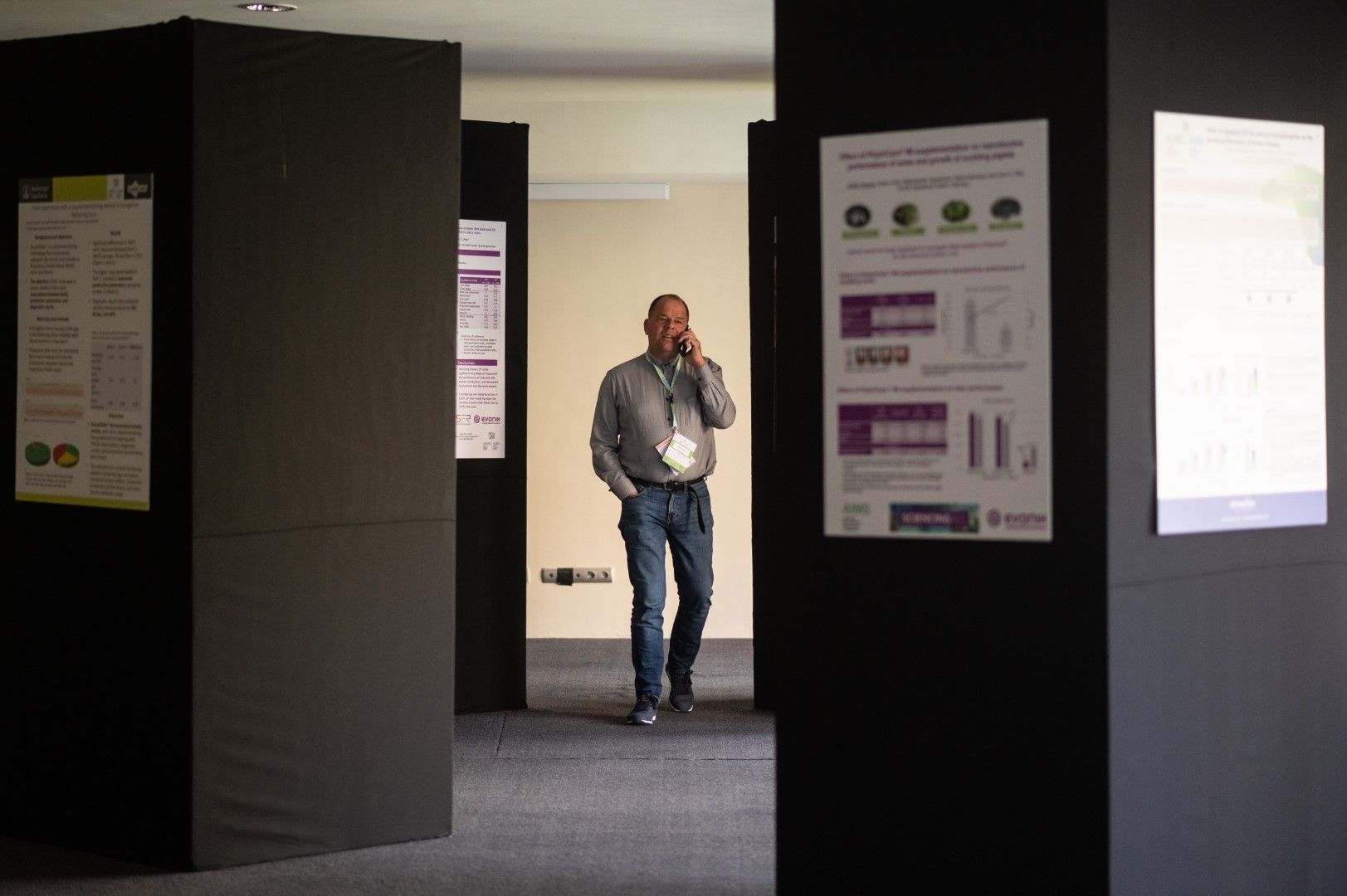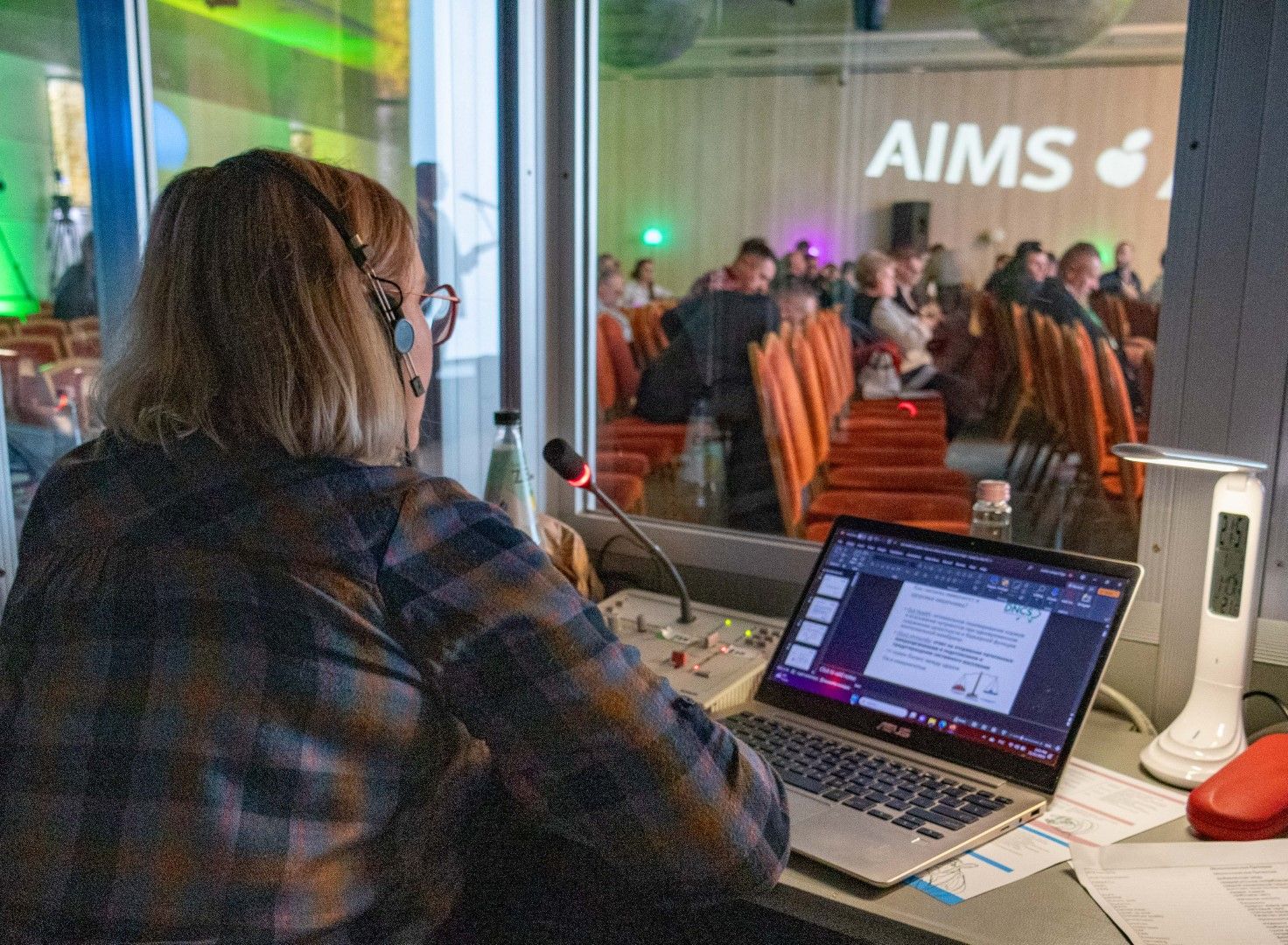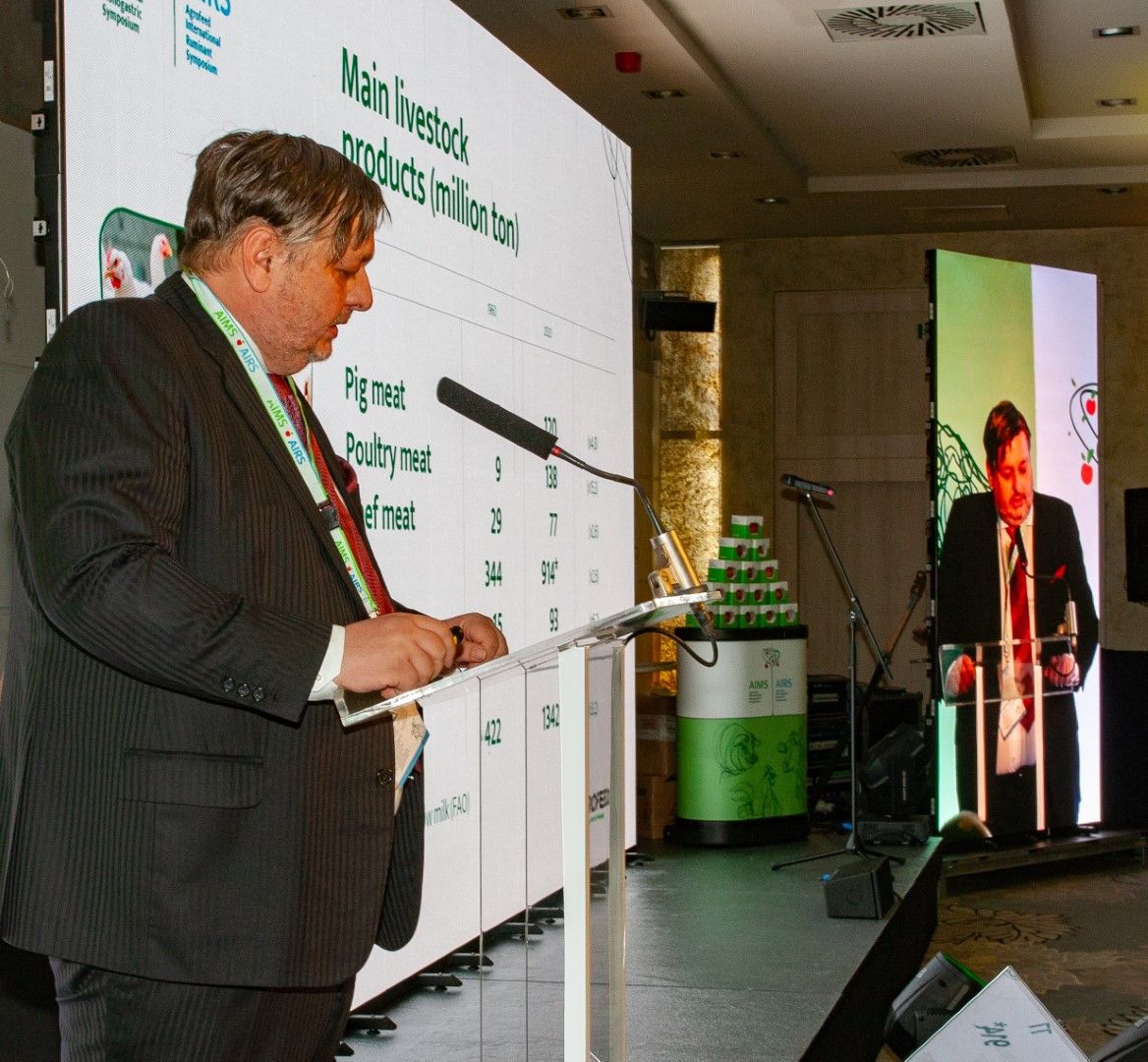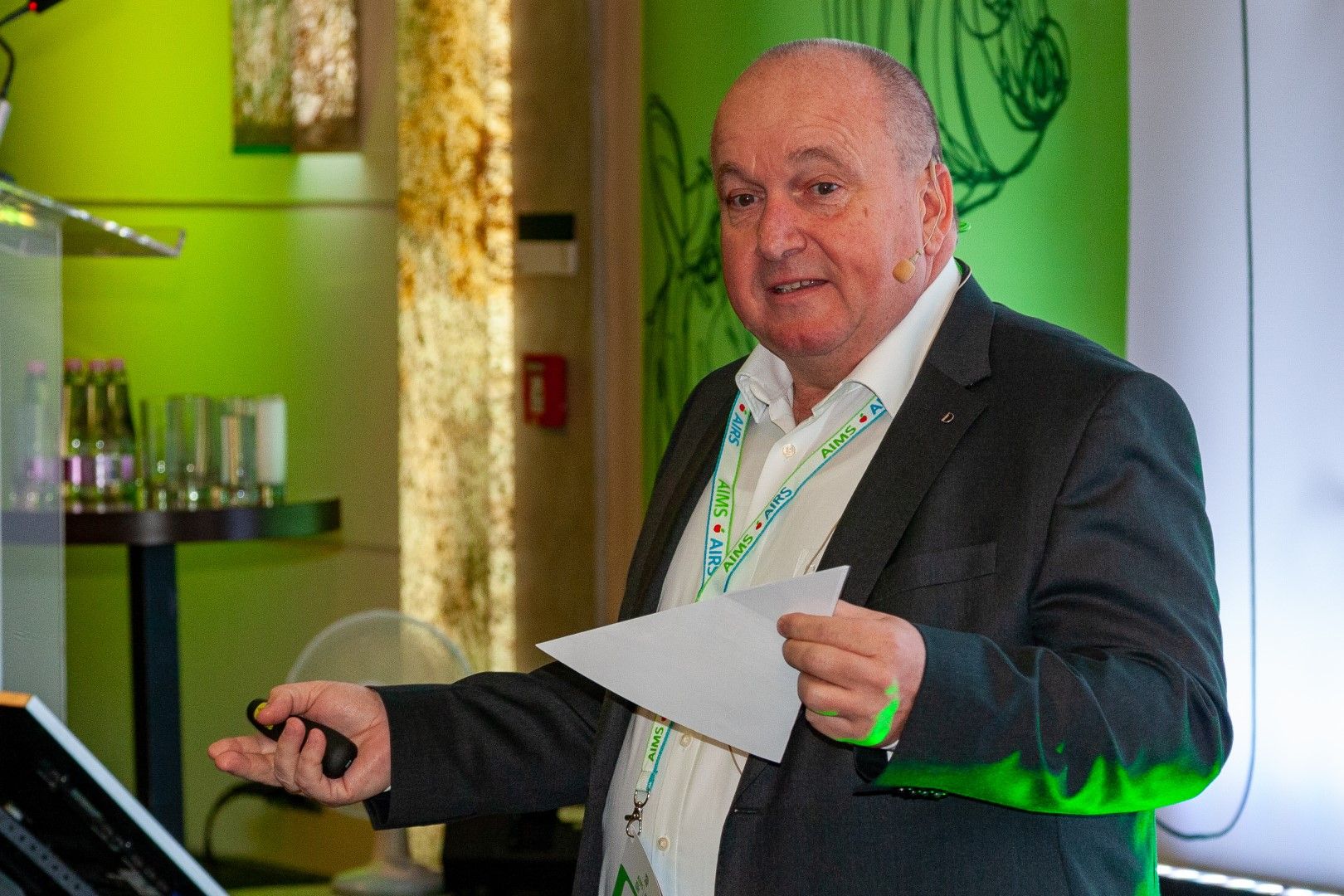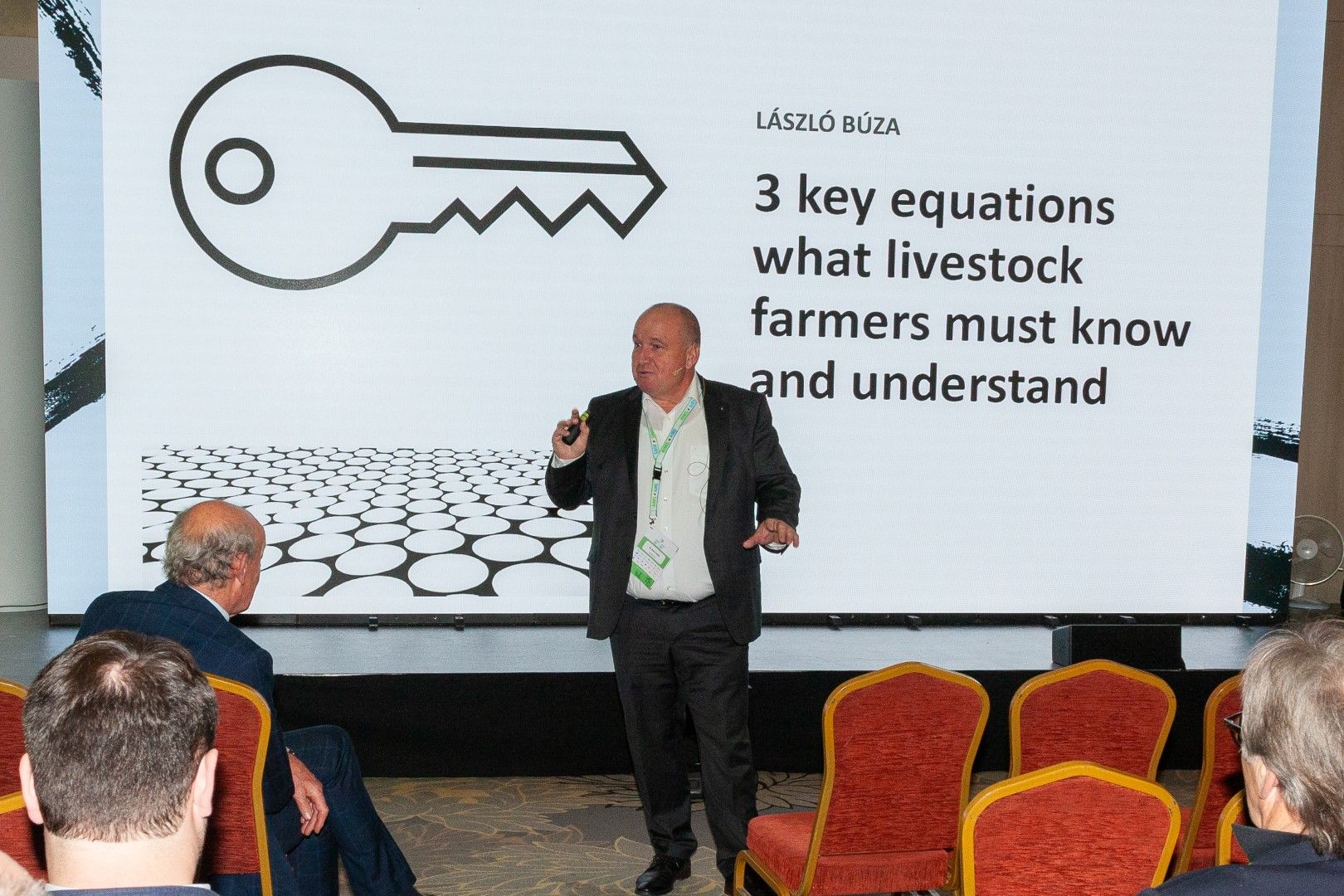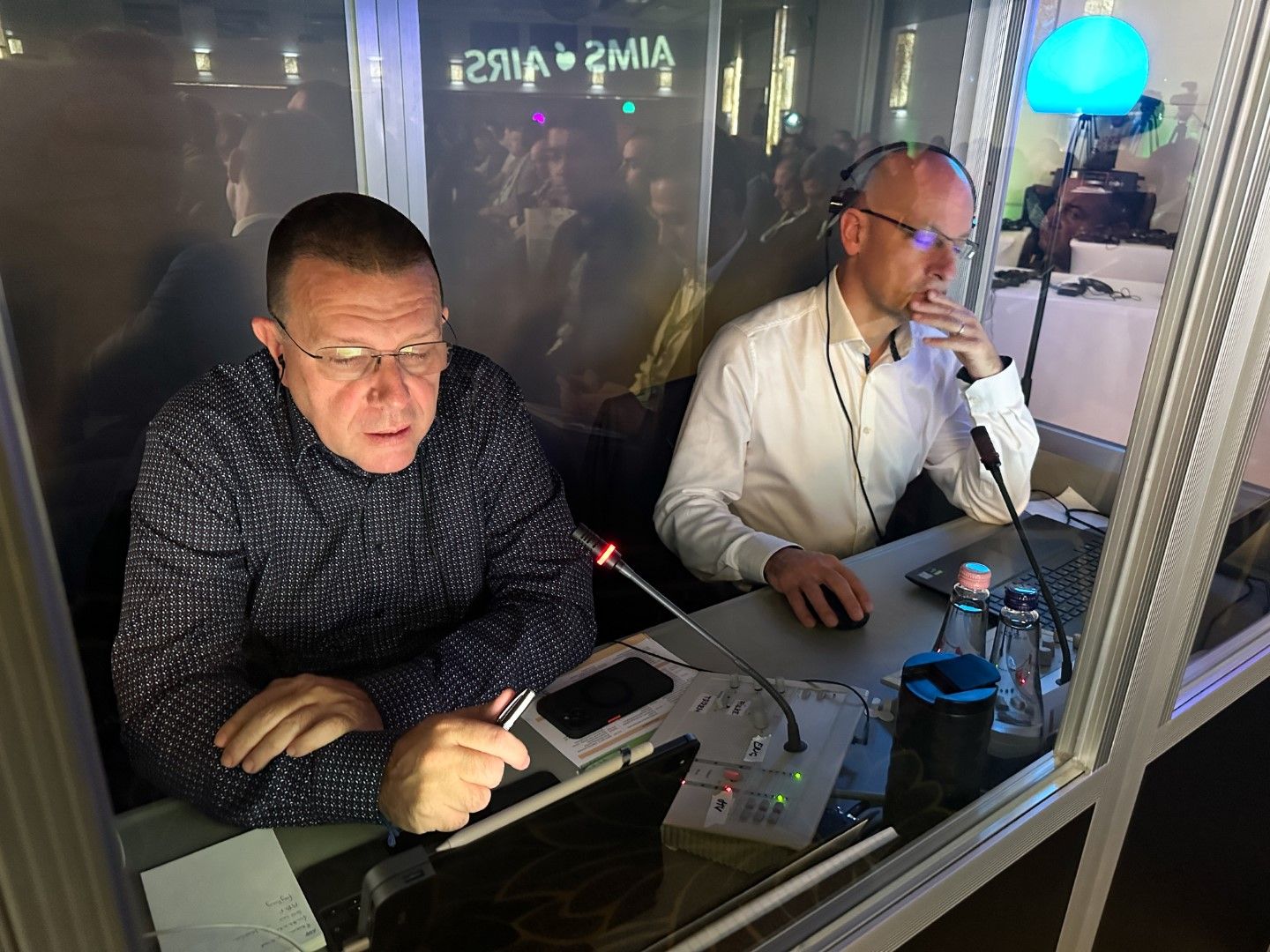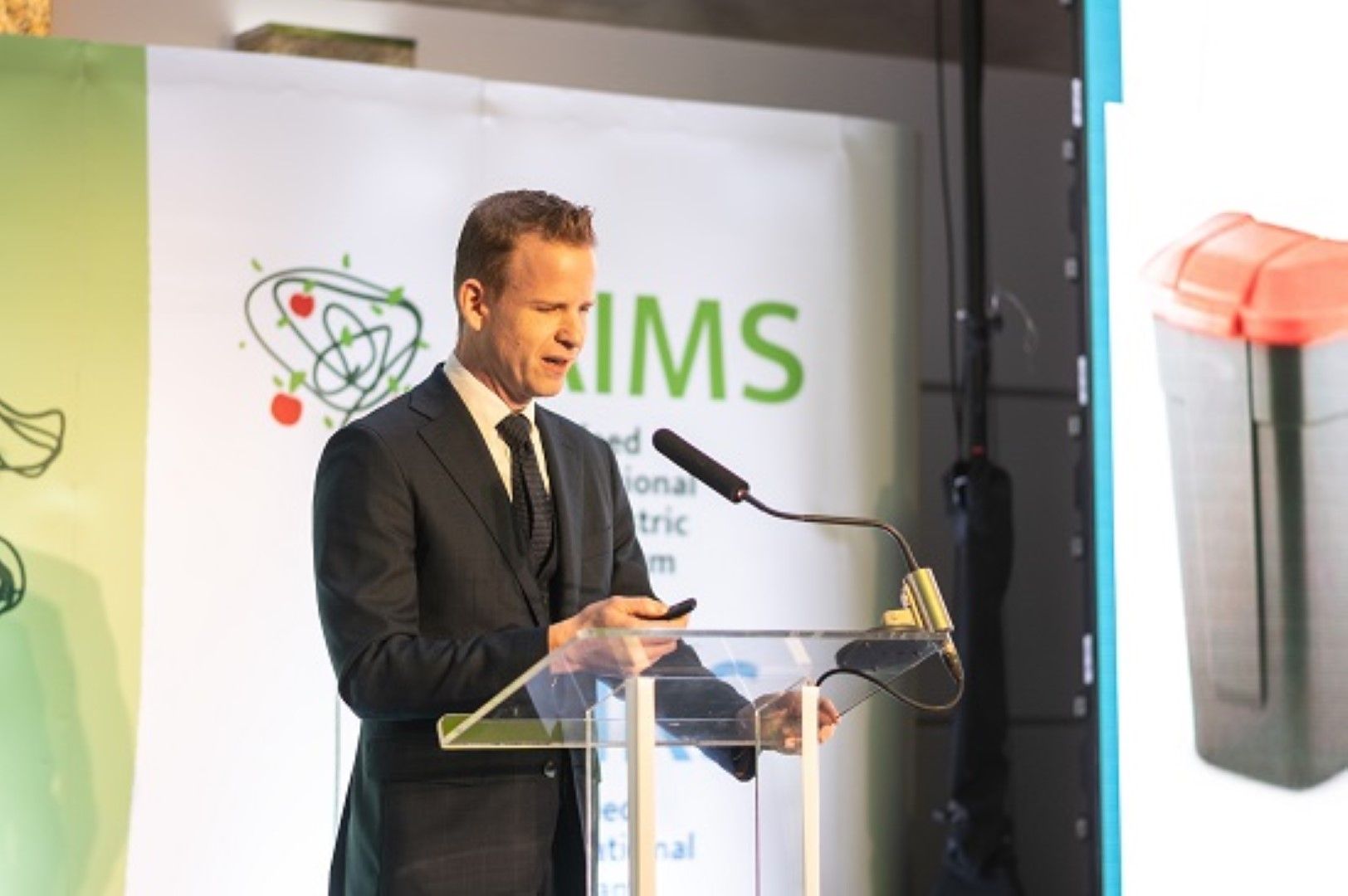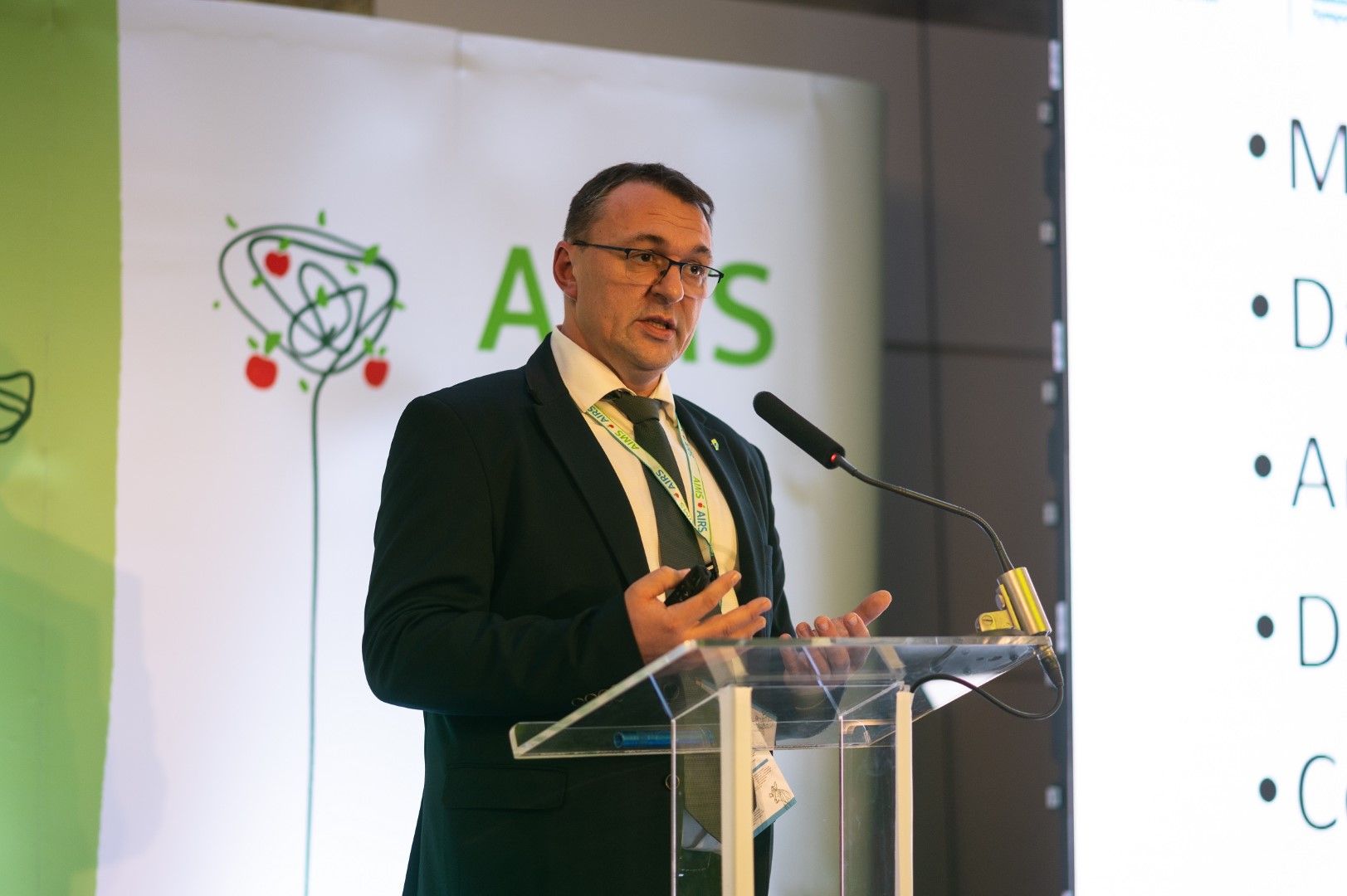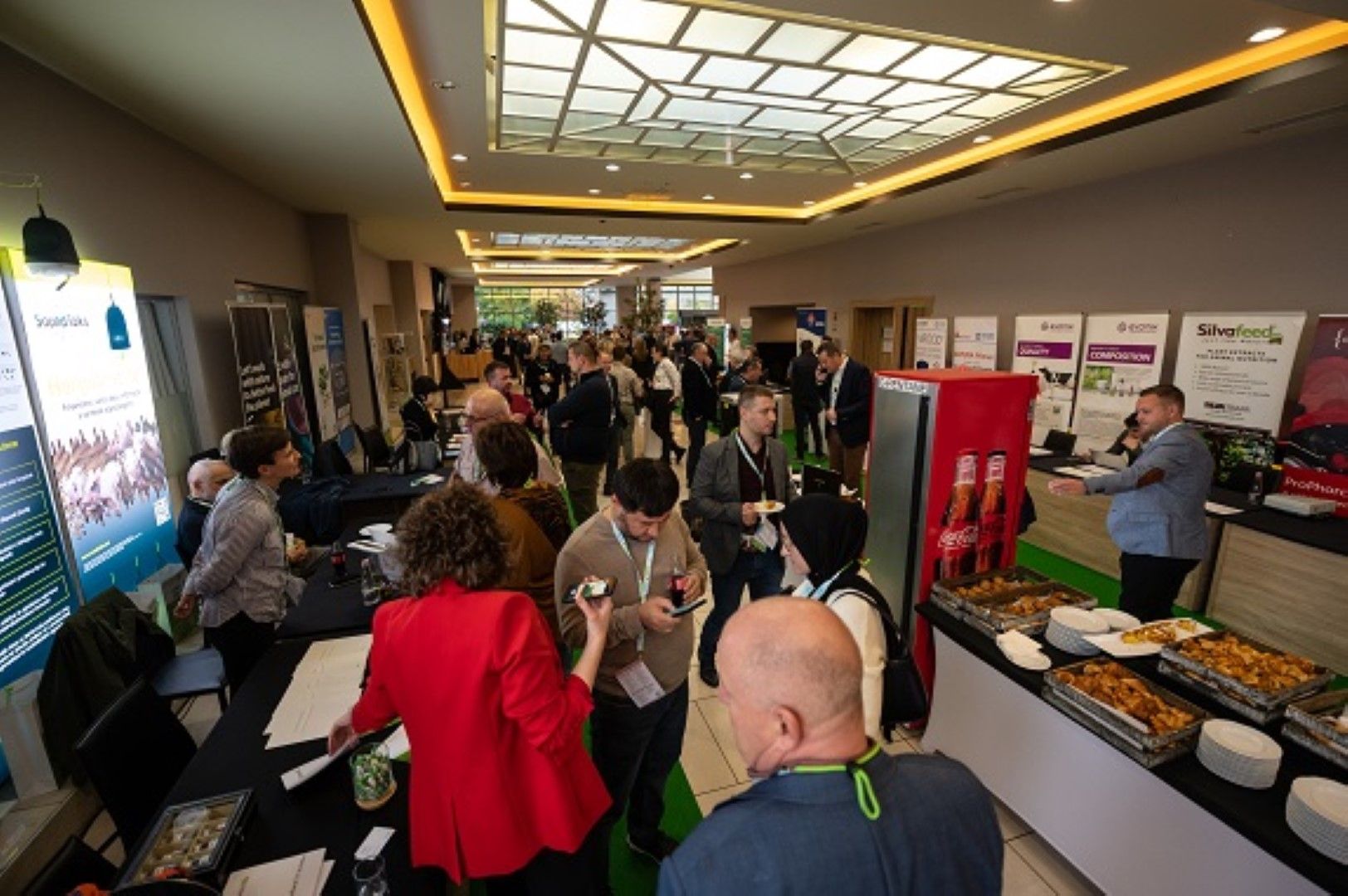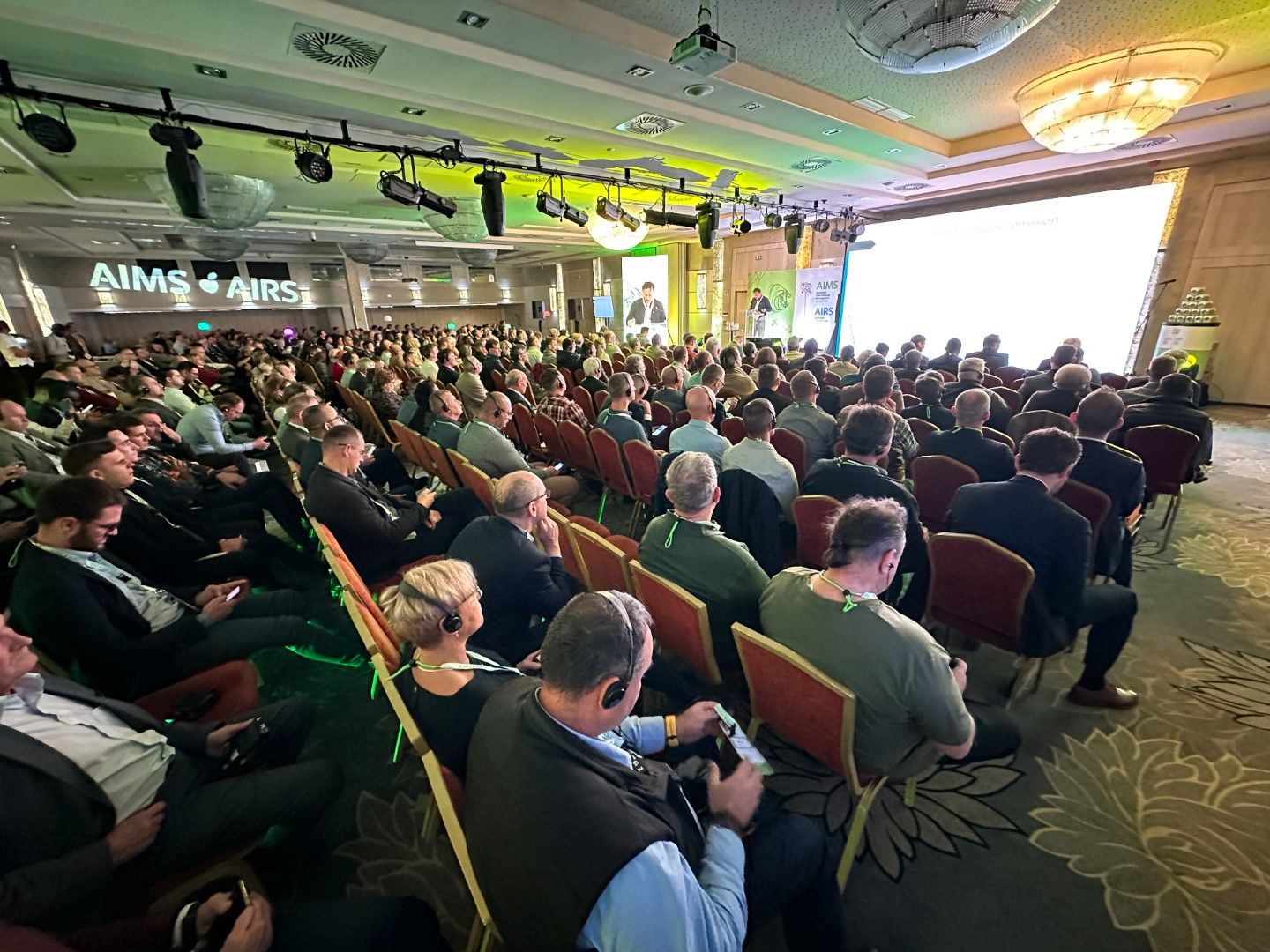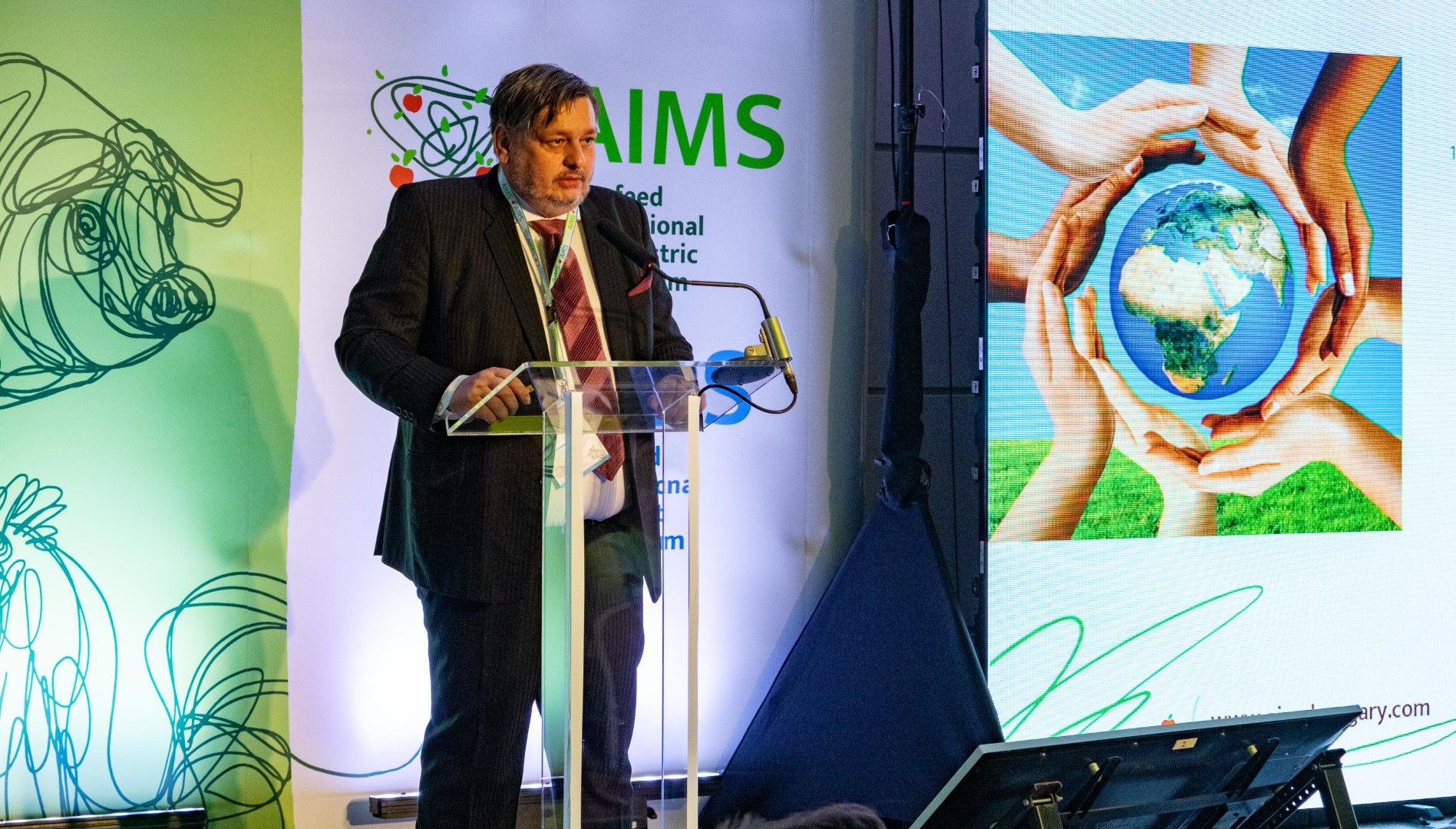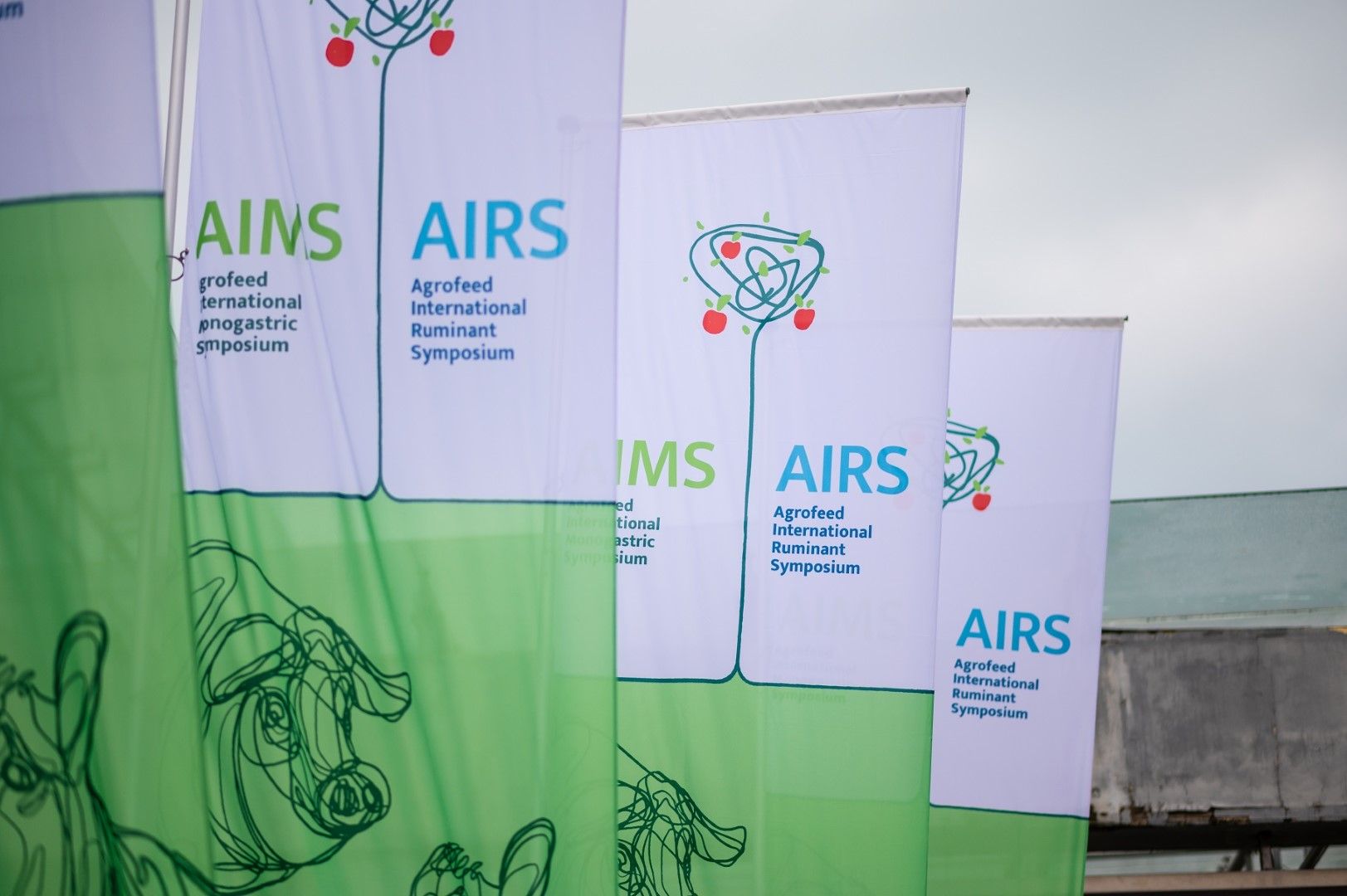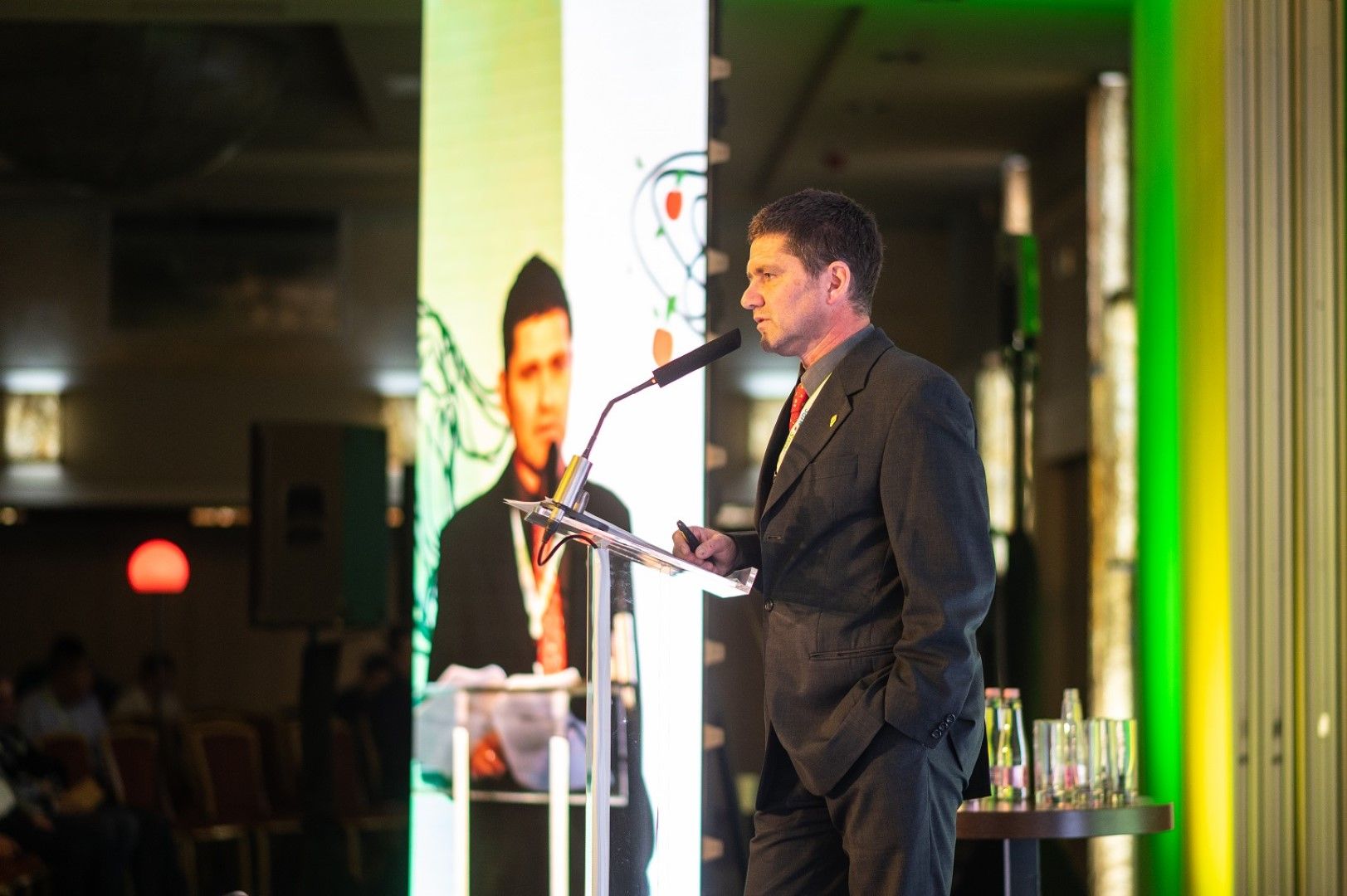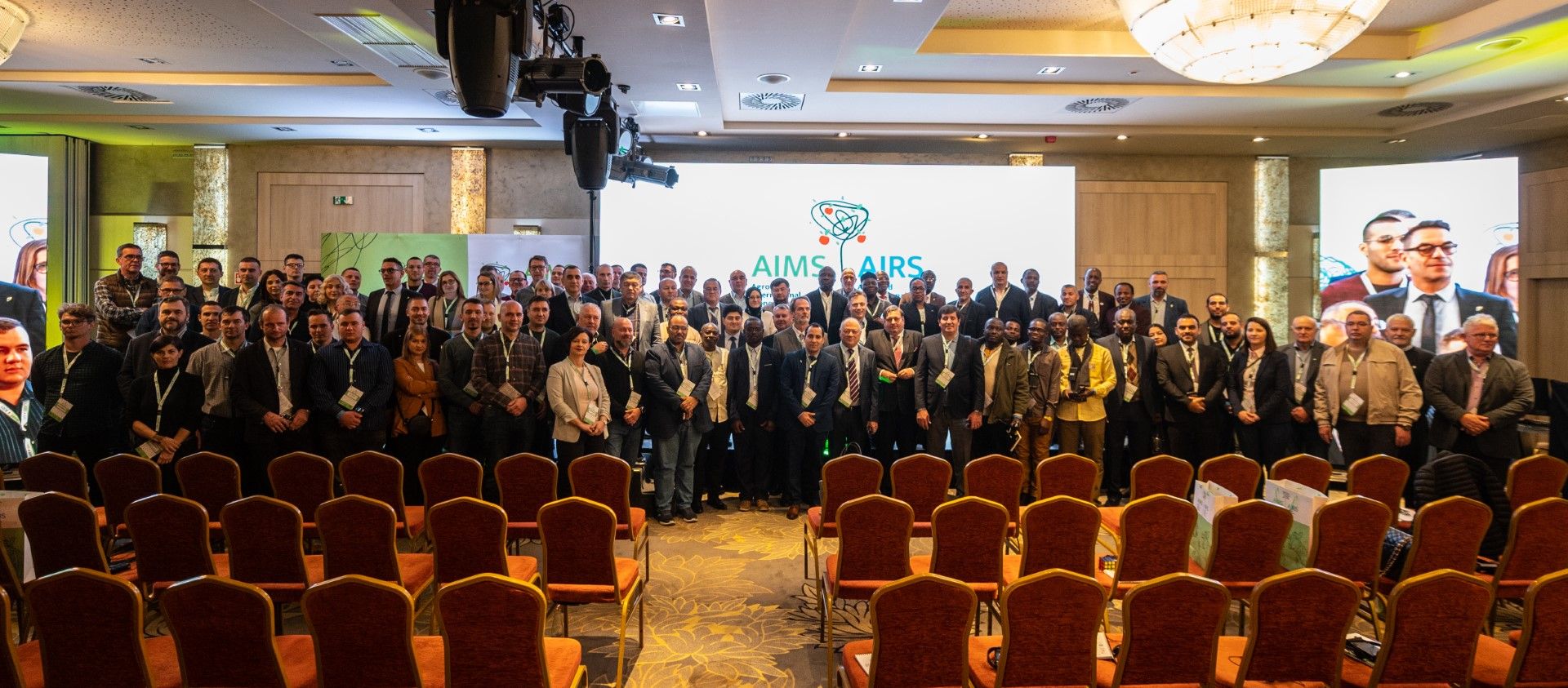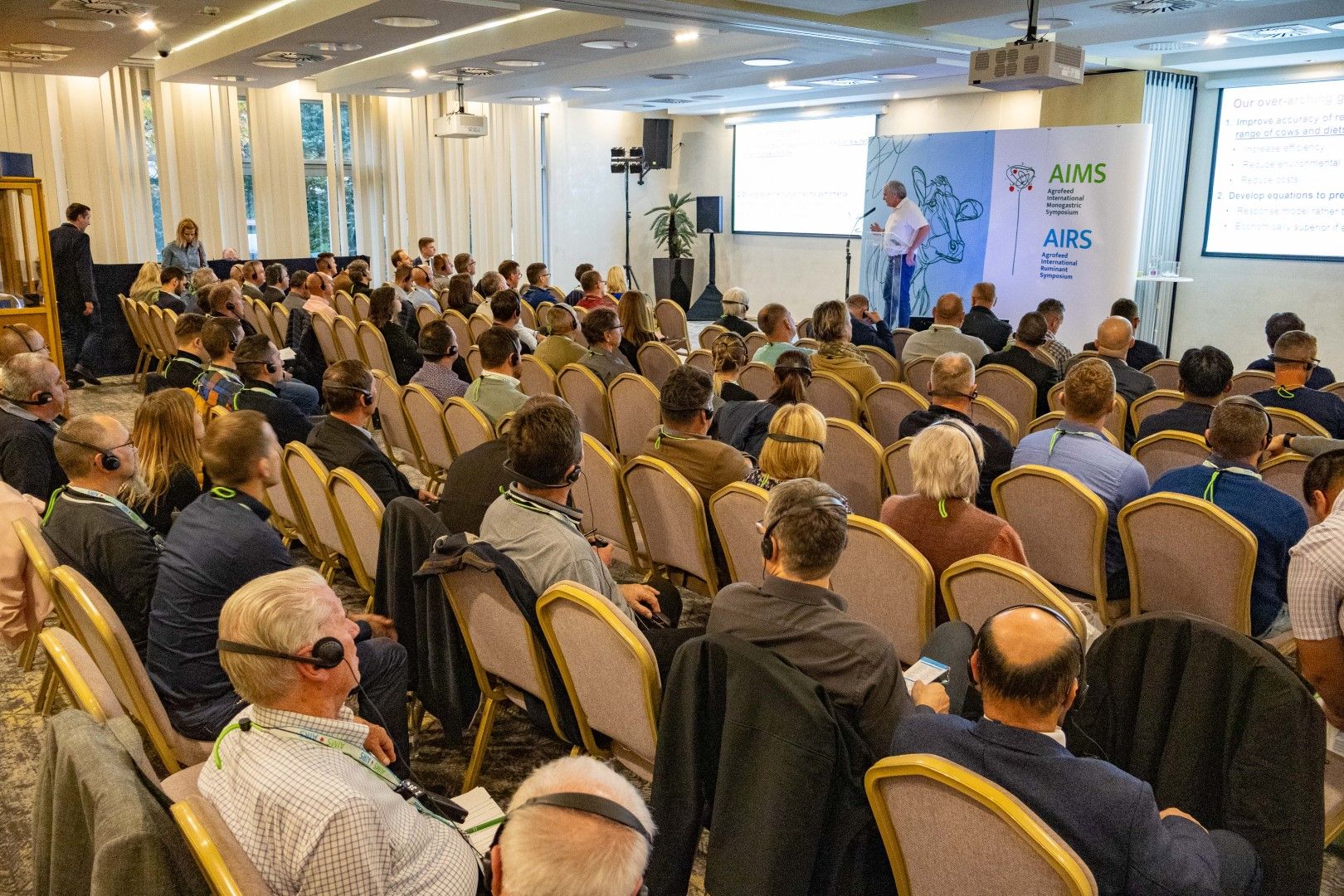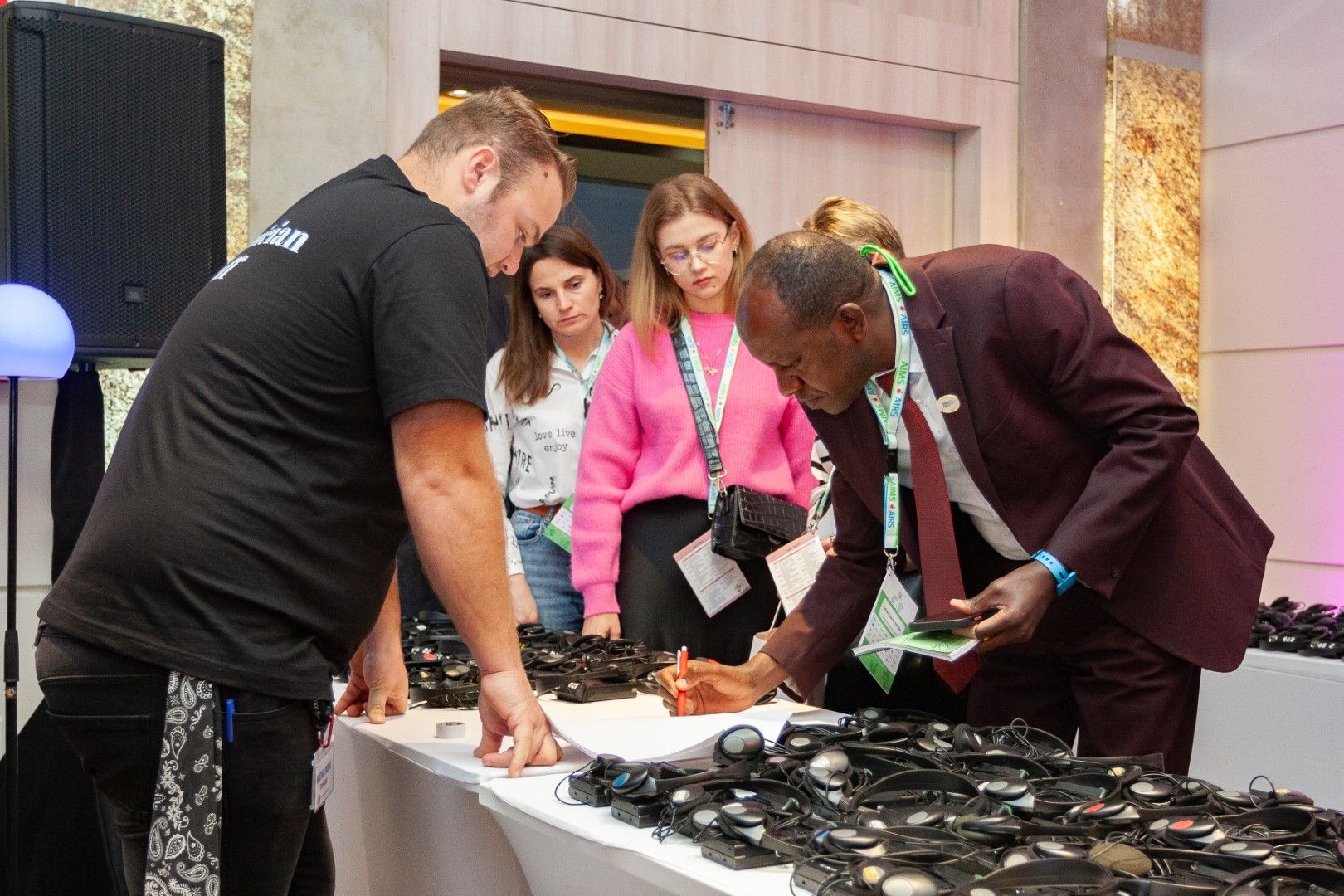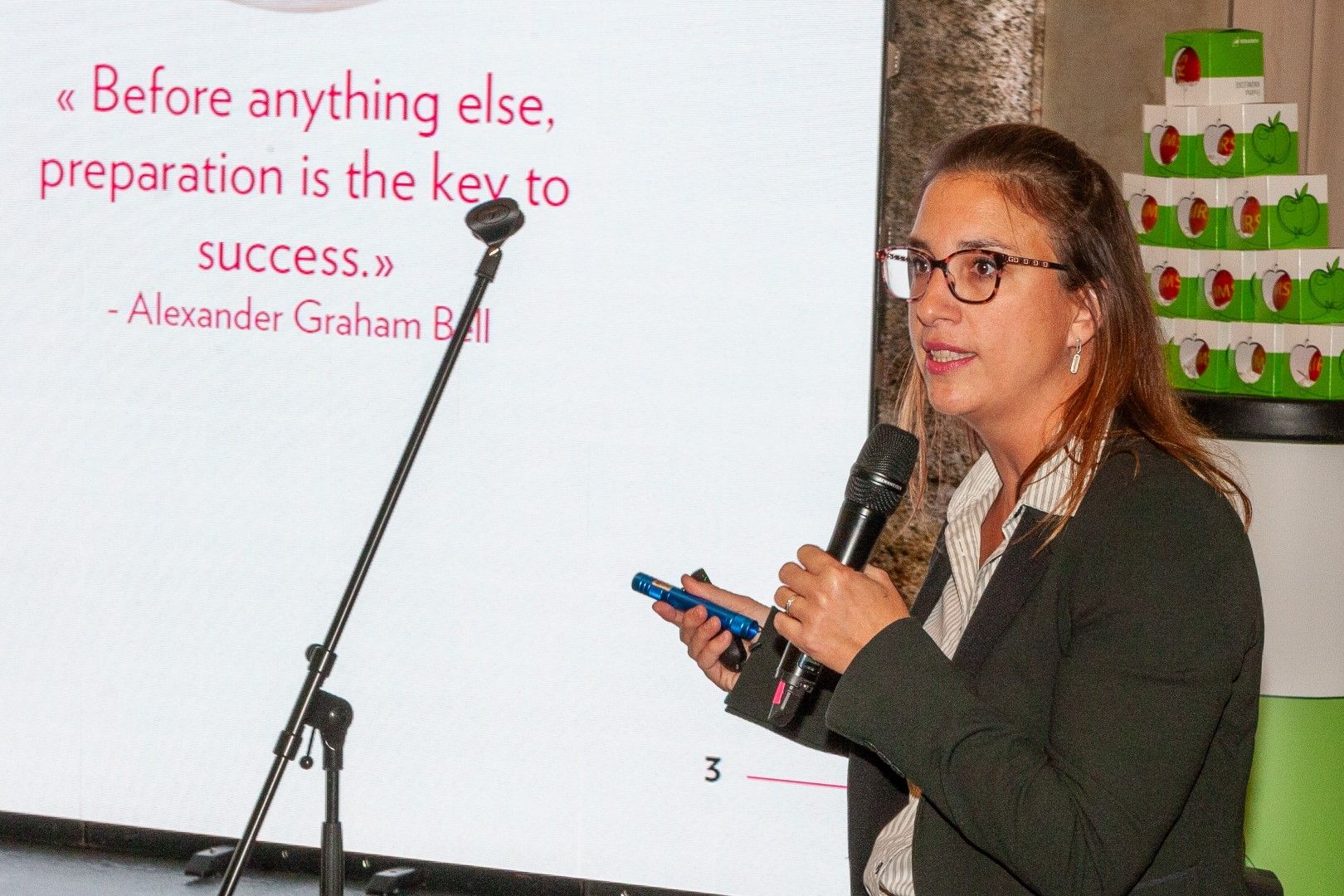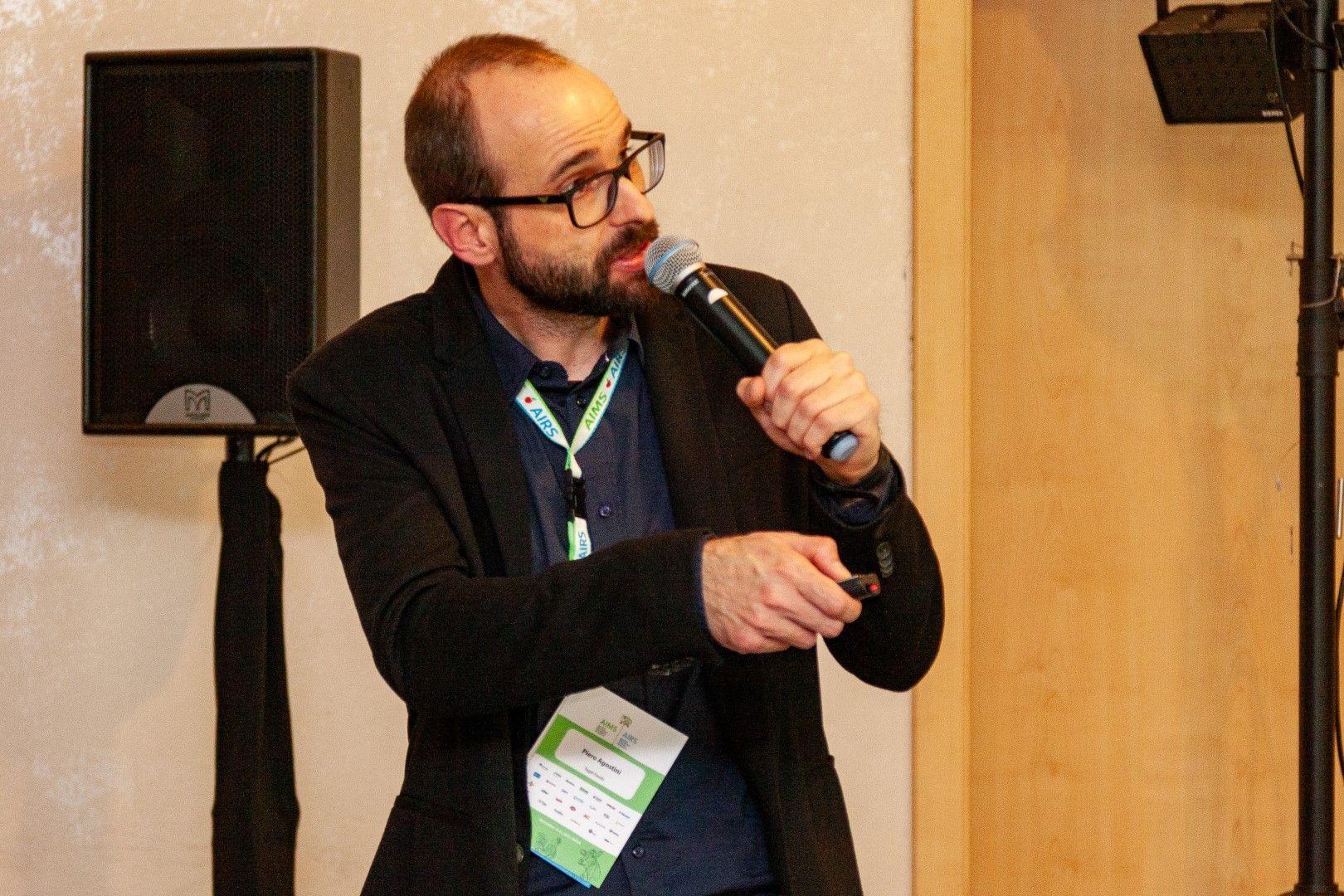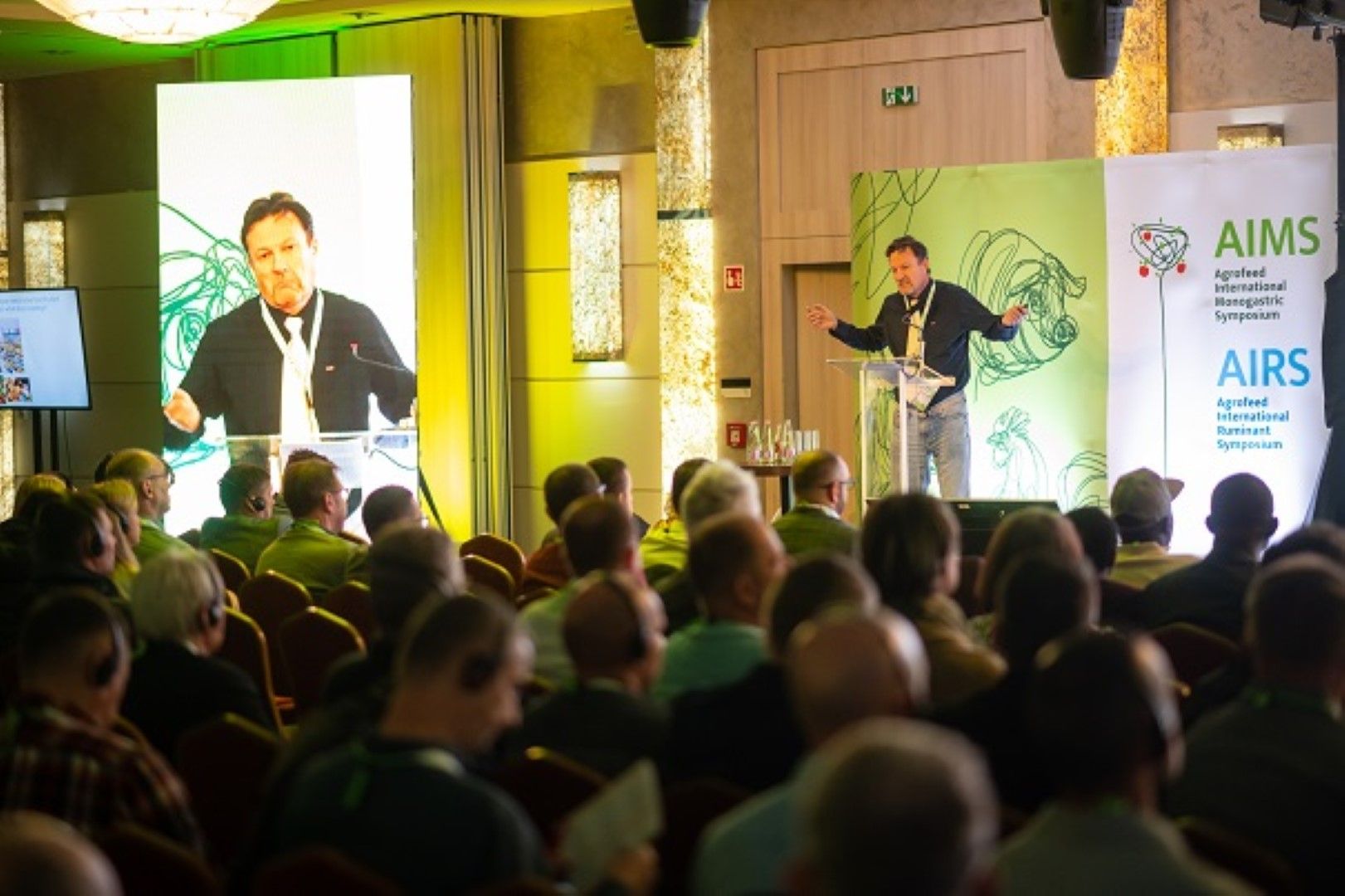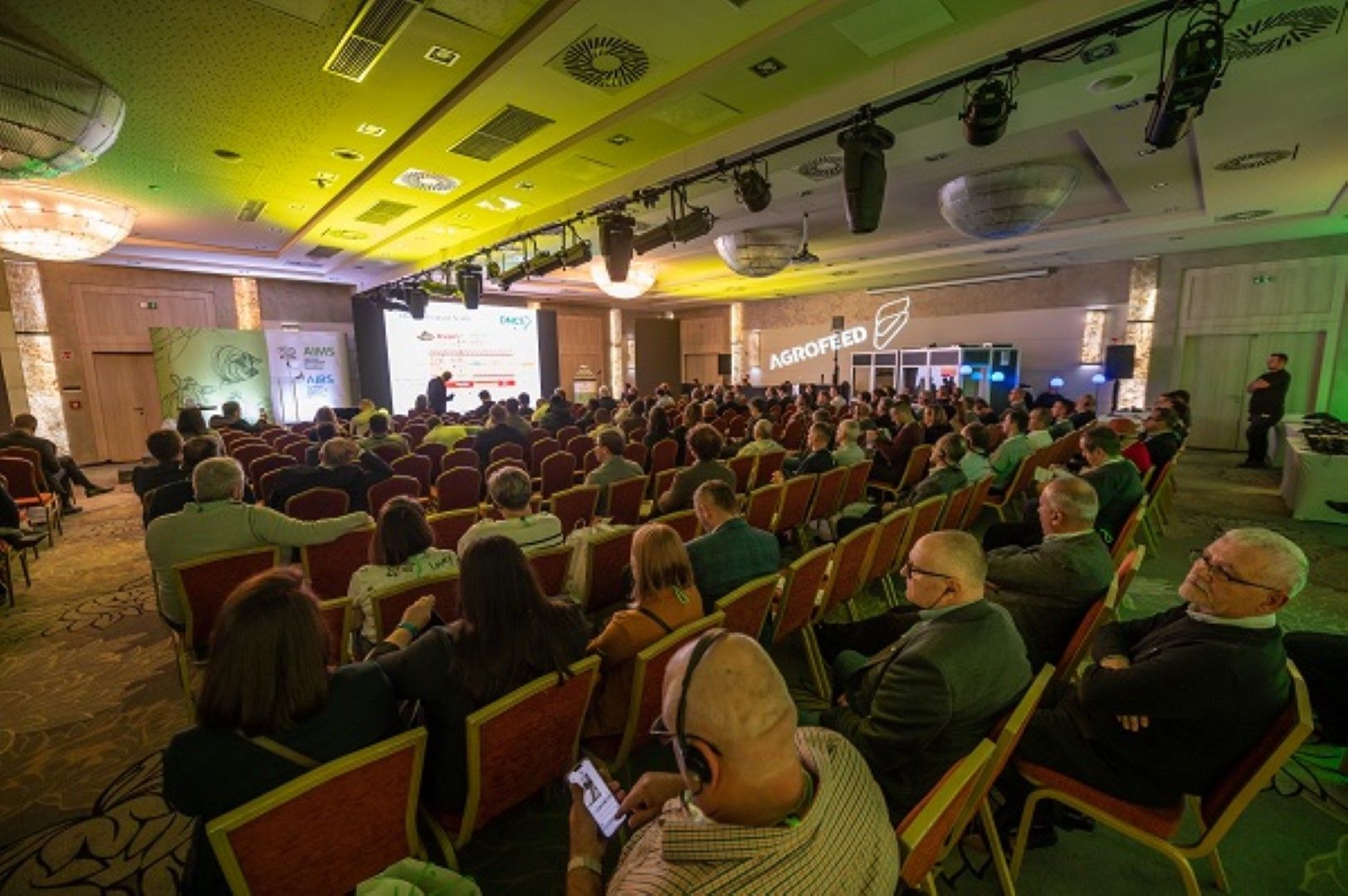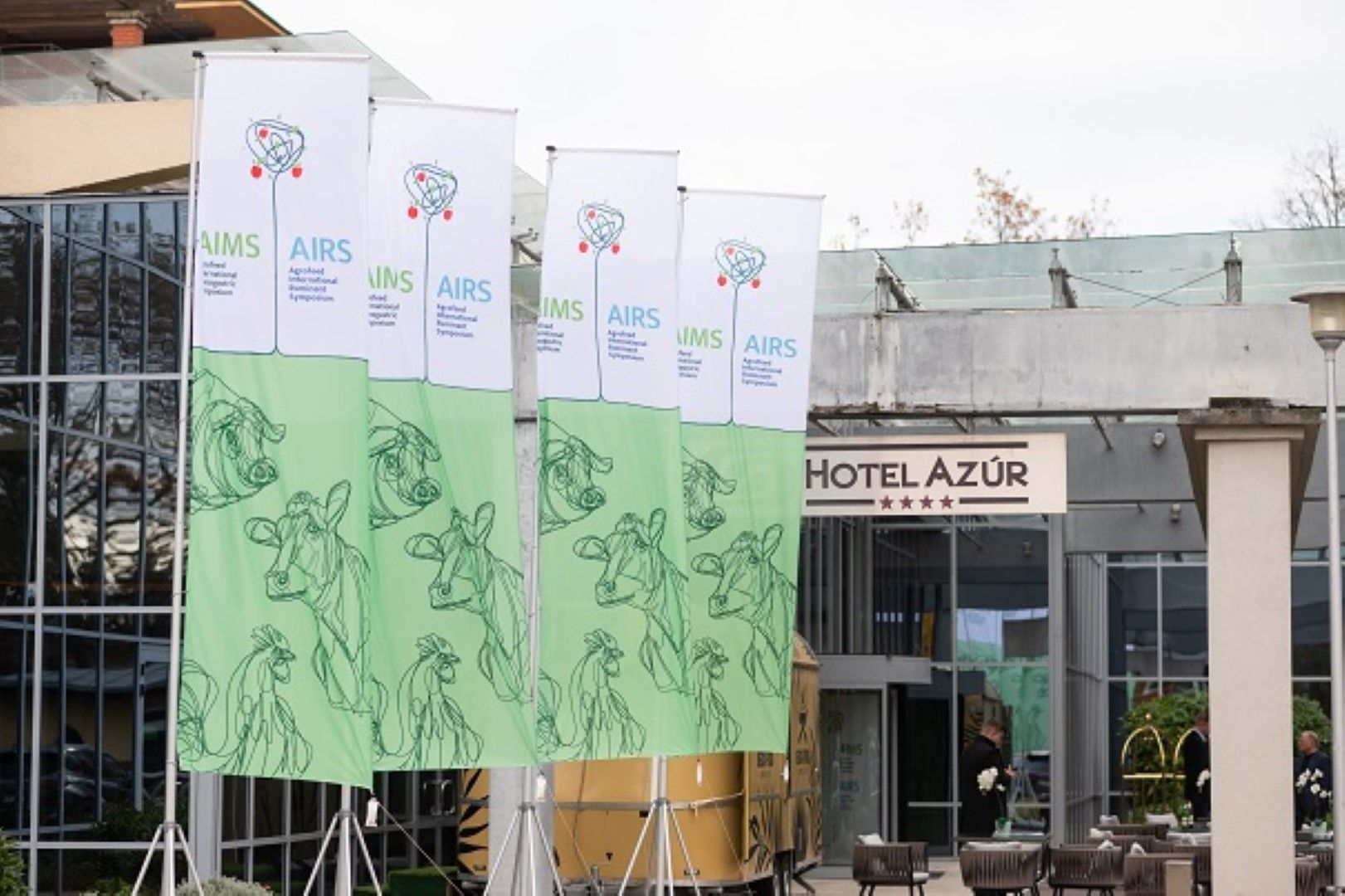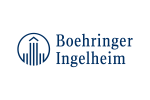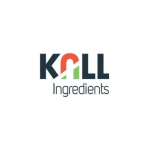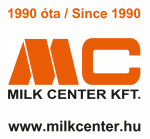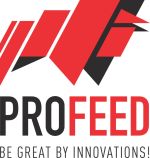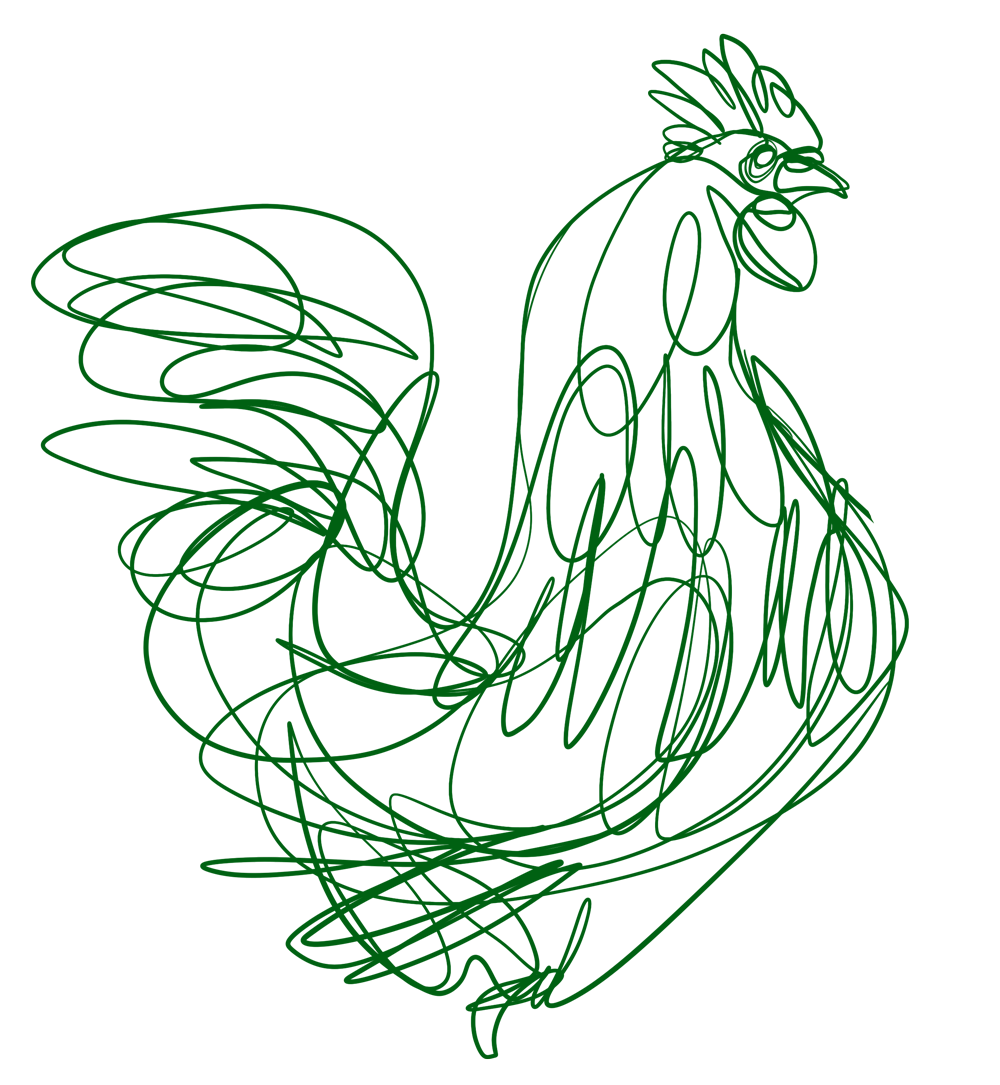
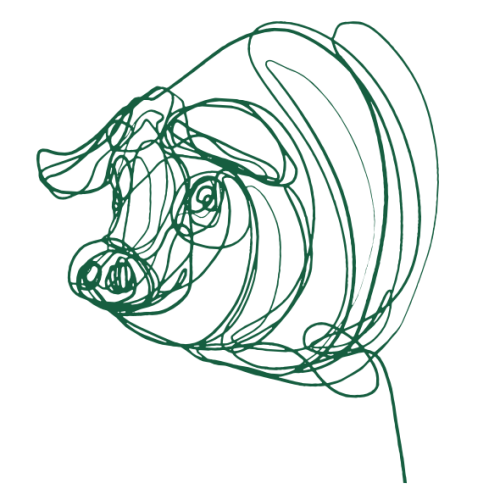
AIMS/AIRS – the largest agricultural conference in Central and Eastern Europe
The largest feeding symposium in Eastern and Central Europe was organized in mid-November, where Agrofeed Kft. hosted more than 600 participants from 40 countries.
The organizer sought answers to the challenges of modern livestock breeding and feeding, expected trends and effective solutions. At the two-day conference he presented all of this with sixty lectures, which represented a high standard at the international level as well. At this year’s conference separate animal species sections were also created for pig, poultry and ruminants.
The soon-to-be-25-year-old Agrofeed is the leading premix producer in Central and Eastern Europe with two production bases and a distribution network covering nearly 40 countries. 370 million broilers, 7,5 million turkeys, 2,6 million breeding poultry, 2,6 million waterfowl, 135 thousand cattle, 160 thousand sows and 5 million fattening pigs are fed.
In the past sixty years, food production has kept pace with population growth and even a welfare revolution has taken place, said Tibor Csitkovics, the founding owner and managing director of Agrofeed in his opening speech. The production volume of poultry meat increased by 15,3 times, pork by almost 5 times, eggs by 6 times and beef by 2,6 times. Thanks to the parallel scientific revolution, new hybrids and technologies were created, and animal feeding became more modern. While in 1960, an average of 3,75 kg of feed was needed to produce one kilogram of meat, this has now decreased to 2,65 kg, and compared to 540 kg of meat sold per sow, it is now 2,2 tons.
“Climate protectionists and animal welfare activists are not aware of how much we have done for these goals,” emphasized the managing director. While in 1960 0,8 million sows were needed to produce 1 million tons of meat, currently a third is enough using 30 percent less feed. 60 years ago 645 million chickens produced 1 million tons of meat for which currently 339 million are enough.
The food demand of the Earth’s constantly growing population cannot be met. While 10 percent of humanity is starving, climate change will make it increasingly challenging to produce the necessary amount and quality of food. It is necessary to further increase efficiency and improve the type of feed. This way you can avoid disaster.
How does science contribute to these goals? Dr. Károly Dublecz, head of the department of the Hungarian University of Agriculture and Life Sciences gave a lecture on the current challenges and opportunities of feeding livestock. Among other things he emphasized that it is inevitable to integrate social and environmental protection aspects into production, but he also added: he does not believe that in any other industry it has been possible to reduce the carbon footprint to the same extent as in animal husbandry. At the same time food chains will demand that the amount be marked on the products within the foreseeable future.
While COVID has claimed nearly 5 million victims globally in a few years, antimicrobial resistance (AMR) may soon be responsible for the premature death of 10 million people in a year emphasized Dr. Ákos Jerzsele, head of the department of the University of Veterinary Medicine. In addition to presenting the latest research results, he underlined that this can only be done with global cooperation and the “one health” principle, that is professionals must work together for the sake of human, animal and environmental health, since each area affects the other.
Dr. Gábor Kardos, SOTE employee, presented research on the appearance of multiresistant pathogens in natural waters and wild animals, emphasizing how these extremely dangerous pathogens are able to pass from one living organism to another thanks to their genetic properties.
If animal husbandry wants to meet the requirements of environmental sustainability, but consumers are not willing to pay the costs then there is nothing left but to increase efficiency, which must be accompanied by communication, information and education at the societal level. Among other things, Dr. Zoltán Pachinger, agricultural consultant, drew attention to this, and he gave a lecture entitled “Green and sustainable revolution versus economical food production”.
Alpár Botond, head of research and development, presented tests related to the feed products of Agrofeed, which were developed using domestically available raw materials and fermented with an innovative process. Among other things he emphasized that the process can be applied to any feed plant and the result is a product that contributes cost-effectively to better digestion and nutrient absorption.
Based on the feedback, it can be stated: there is a need for professional conferences of this kind, so Agrofeed is already planning the organization of the next AIMS/AIRS symposium!
Content
Galéria
Keynote speakers
-
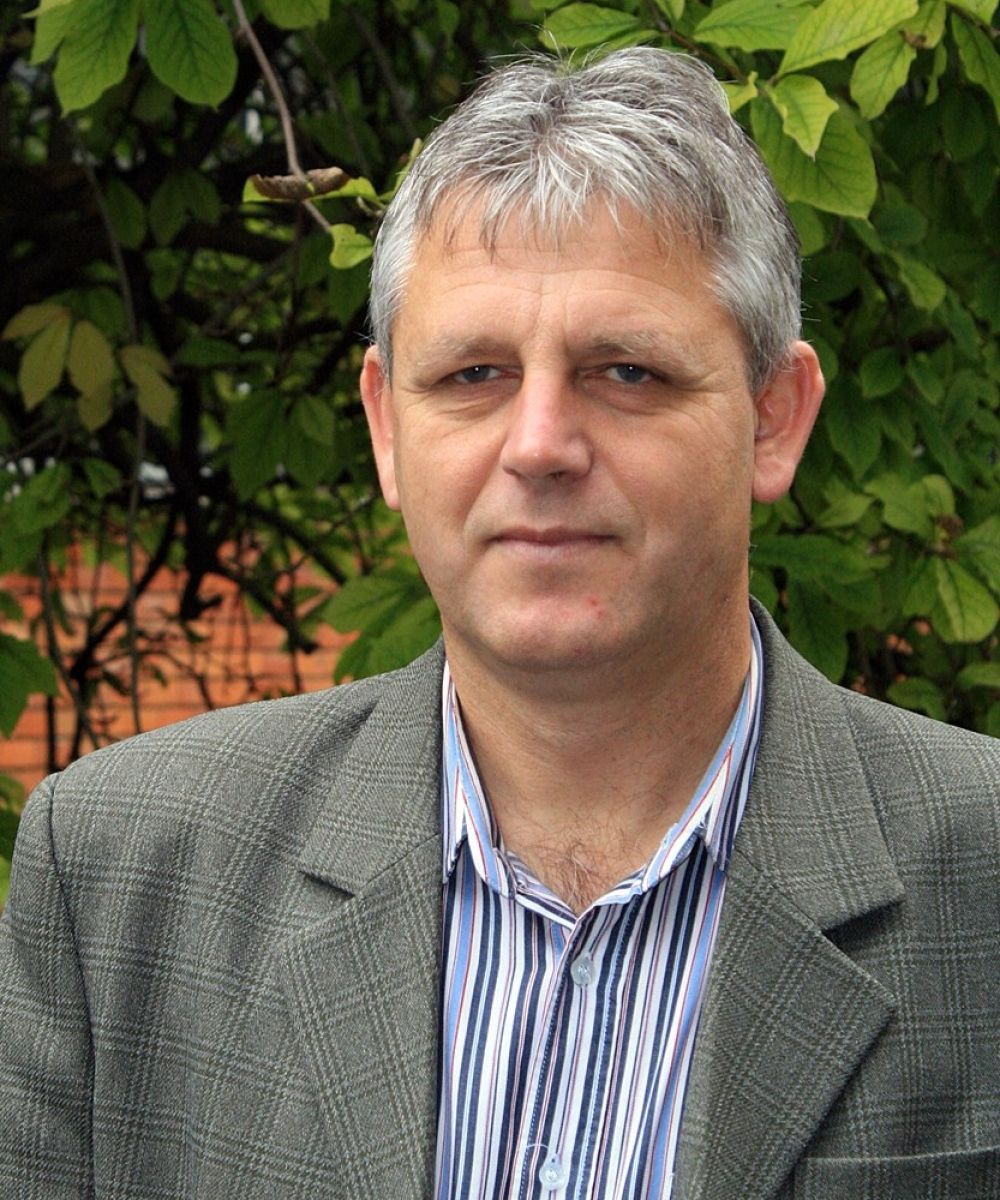
Károly Dublecz PhD.
Challenges and opportunities in the nutrition of farm animalsHe is a full-time professor and head of the Department of Animal Nutrition and Nutritional Physiology of the Hungarian University of Agriculture and Life Sciences in Keszthely. His research filed is poultry nutrition and is the Hungarian delegate of the working group nutrition of the European World’s Poultry Science Association (WPSA). Since 2020 he is the president of the Hungarian Branch of WPSA. He has diversified cooperation with national and foreign universities and research institutions and with several farms and feed manufacture companies. He is a frequent speaker of workshops, conferences and plays an important advisory work on the field of poultry nutrition.
-
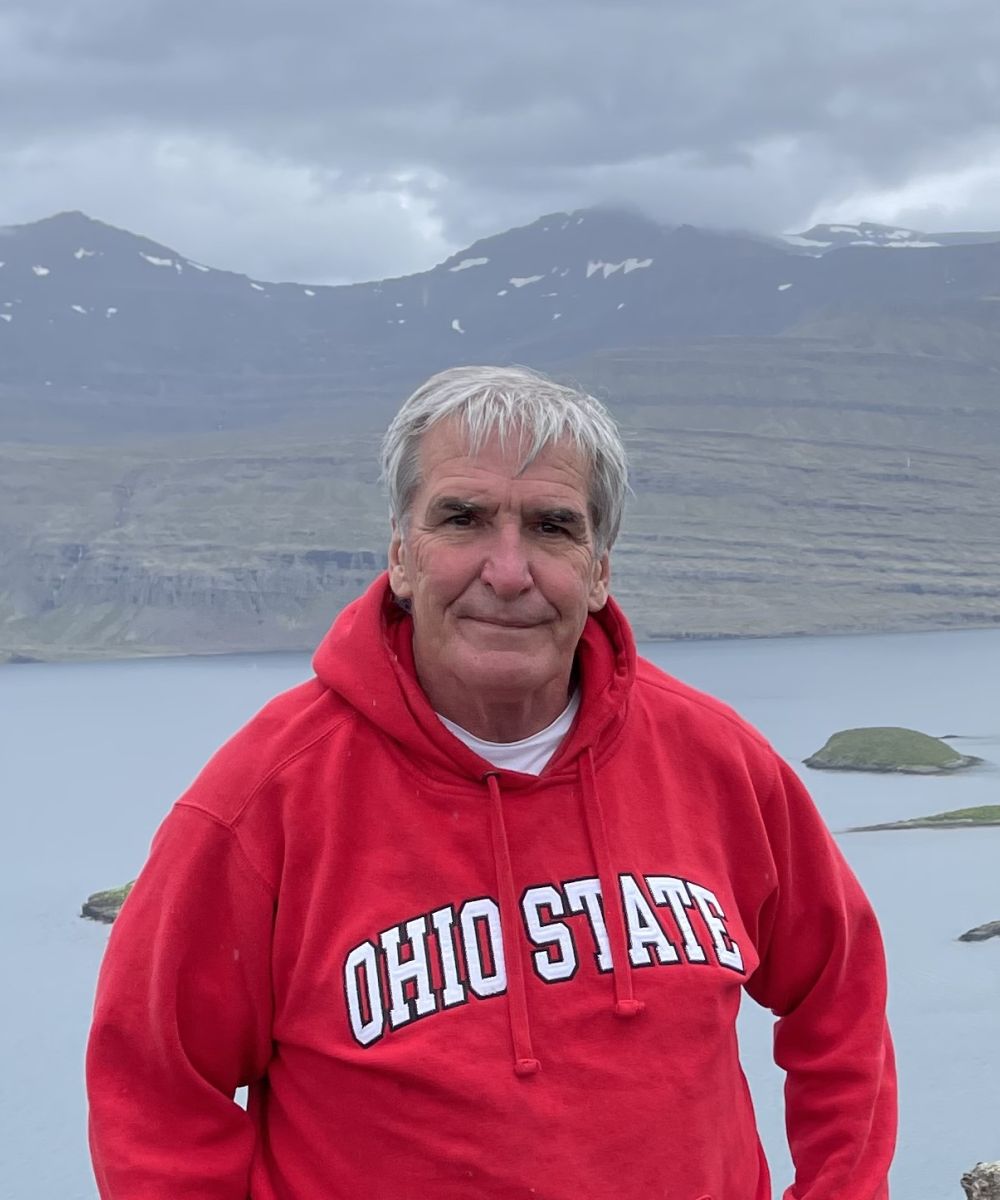
Bill Weiss
Feeding cows to reach their peakDr. Bill Weiss is a Professor emeritus of dairy cattle nutrition at The Ohio State University. During his 35-year career at Ohio State University, he worked extensively in the areas of effects of minerals and vitamins on cow health, forage and feed evaluation, and methods to incorporate variability into ration formulation for dairy cattle. Dr. Weiss has published more than 150 journal articles and 450 proceedings and extension articles. He has won several American Dairy Science Association awards and was named a Fellow of ADSA in 2015. He served on the 2001 Dairy NRC committee and as co-chair on the 2021 NRC (NASEM) Dairy Committee. Dr. Weiss earned his B.S. and M.S. at Purdue University and his Ph.D. at The Ohio State University.
-
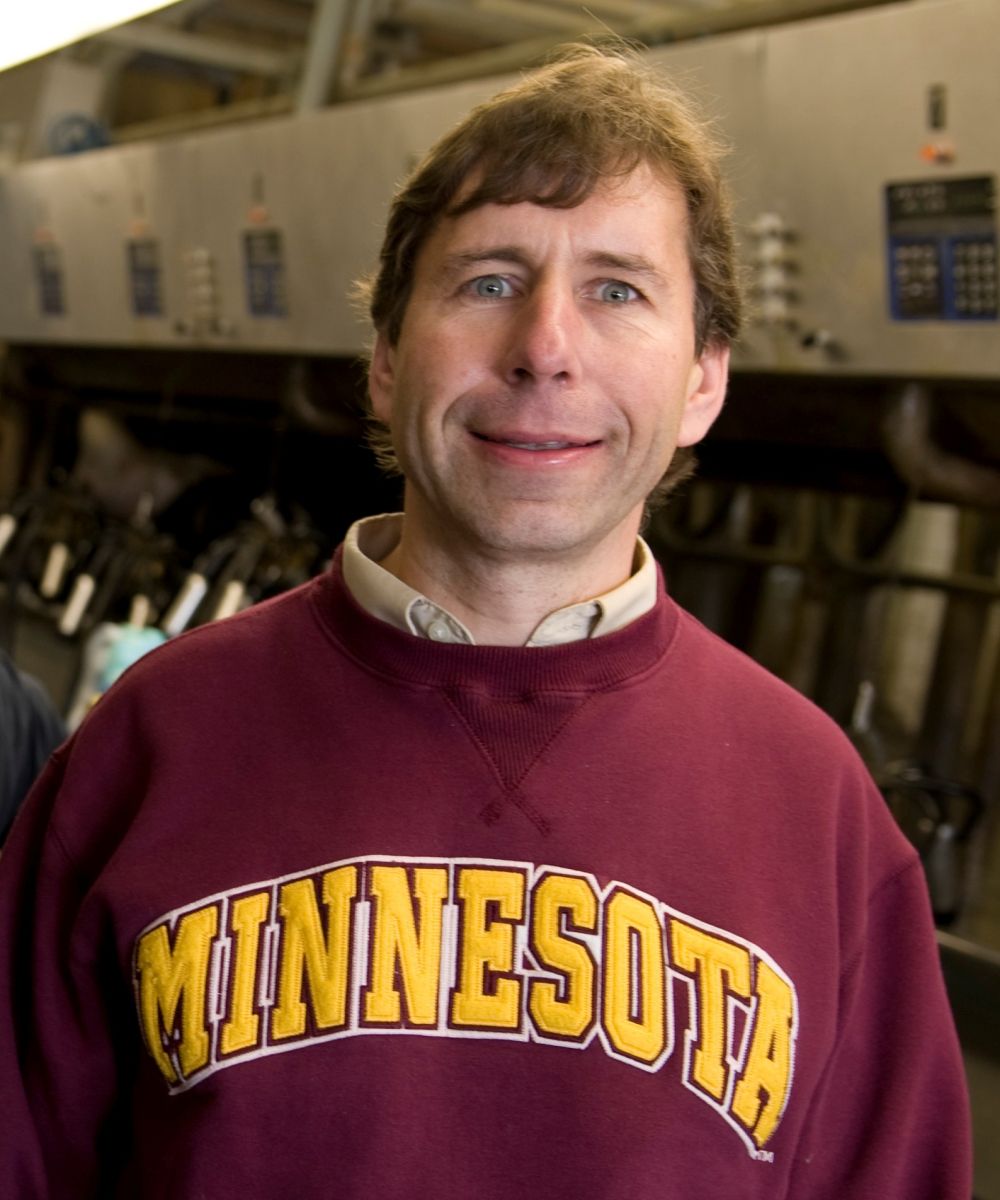
Jim Salfer
Feeding and Management for robotic milking successJim Salfer is a Regional Extension Educator with University of Minnesota. Jim has been involved with several milking robot on-farm research projects in the Upper Midwest USA. These include projects to understand how feeding, building design and management factors affect farm profitability and performance. Jim also does farm consulting and troubleshooting on robot and conventional dairy farms. He grew up on a diversified farm in Minnesota with dairy cows, pigs and chickens. Jim has also managed a dairy farm and worked as a dairy nutritionist for a feed company. Jim has spoken in several European countries as well as Canada and Mexico.
-
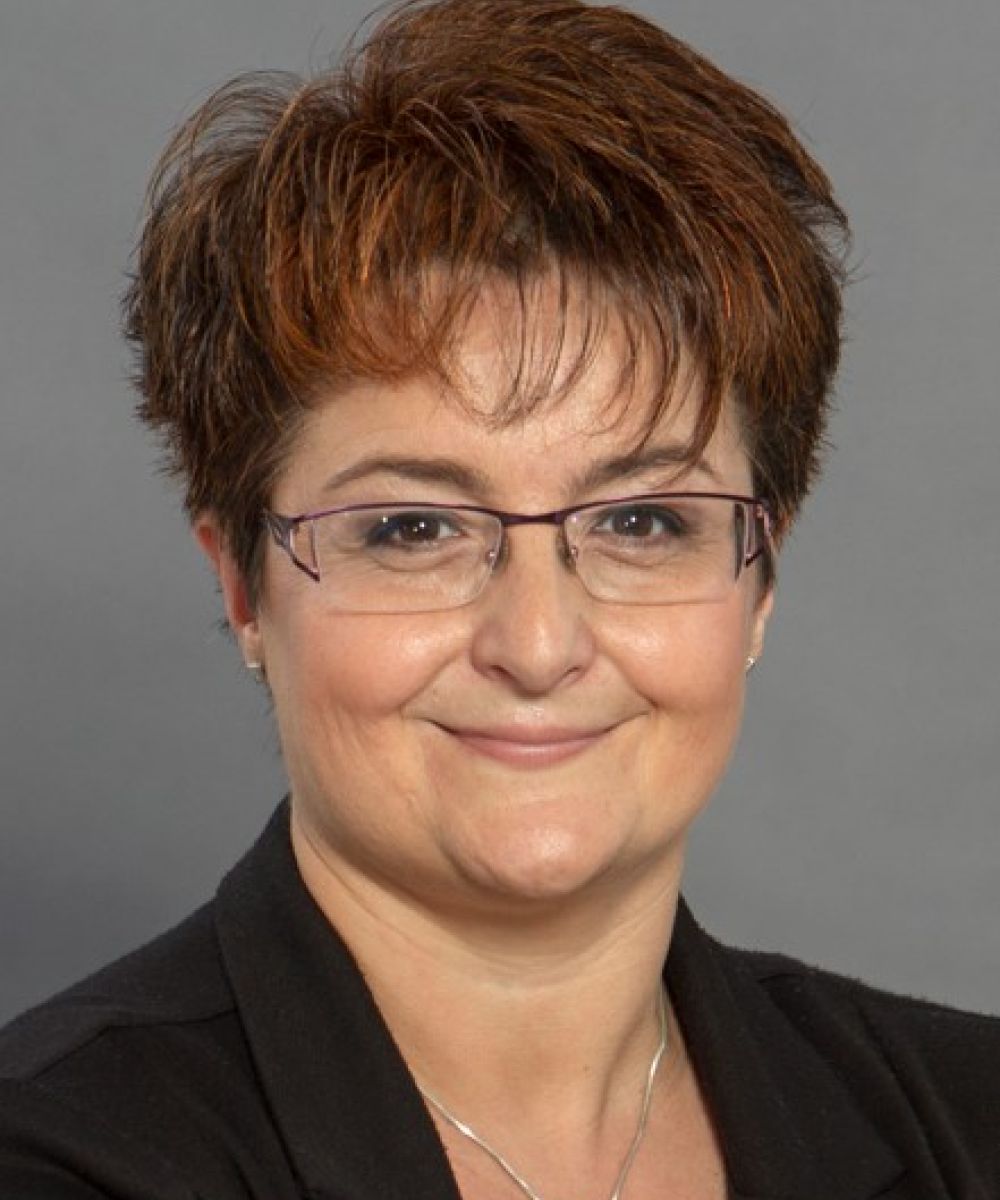
Dr. Szilvia Orosz
The role of modern fiber parameters in dairy cow feedingDr. Szilvia Orosz is agricultural engineer and engineering teacher, defending her doctoral
dissertation in agriculture (nutrition). She is honorary Associate Professor at MATE
(Hungarian University of Agriculture and Life Sciences, Department of Feed Safety). As
forage consultant and head of the Forage NIR Laboratory of ÁT Kft (Livestock Performance
Testing Ltd., Gödöllő) specialised for forage analyses and -conservation. The Forage NIR
Laboratory has a unique "agri-face", which shows new perspectives to the dairy sector
(CNCPS model: forage parameters). Teaching, trainings and knowledge-transfer are her main
tasks. She is one of the organisers of the Dairy Seminar program, which was launched 10
years ago for engineers, vets, farm owners and decision-makers. In recent years, she has
focused on improving the forage bank safety and stability under climate change and
improving milk production outcomes, with a focus on digestible fibre (early cut Italian
ryegrass, early cut whole crop cereals, drought tolerant sorghum and Sudan grass, 'double
cropping'). -
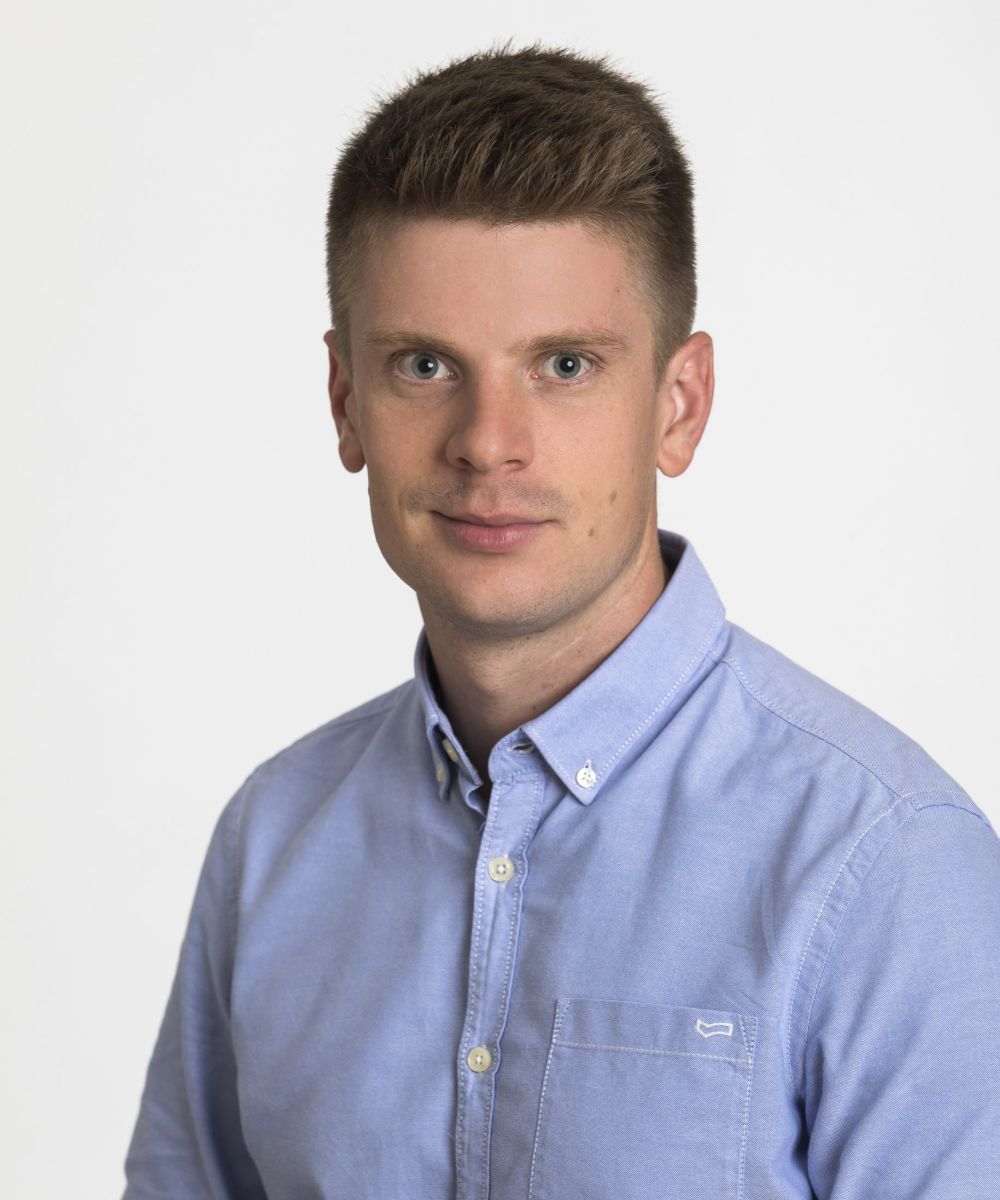
Martin Trombitás
The effect of feeding liquid fermented feeds on dairy cow’s performanceMartin Trombitás is a cattle feeding specialist, the Transdanubia regional manager of Agrofeed Kft. He completed his studies at the agricultural university in Mosonmagyaróvár. He completed his first degree in agricultural engineering, where a cattle feeding experiment was carried out under farm conditions. This is where his interest and commitment to the profession comes from. After completing the training, he worked at Adexgo Kft., where they developed solutions for the problems arising around the calving of dairy cows. He has been working for 6 years at Agrofeed Kft. in the field of cattle feeding. He participated in Agrofeed Kft’s GINOP tender, where he coordinated fermentation experiments on cattle. In parallel, he became a certified livestock engineer. In his thesis, he wrote a summary about the effects of feeding fermented feed, which he performed and experienced at the partners of Agrofeed Kft. His work is characterized by awareness and precision, his aim is to introduce and manage cost-effective feeding programs, and to achieve joint success together with his partners.
-
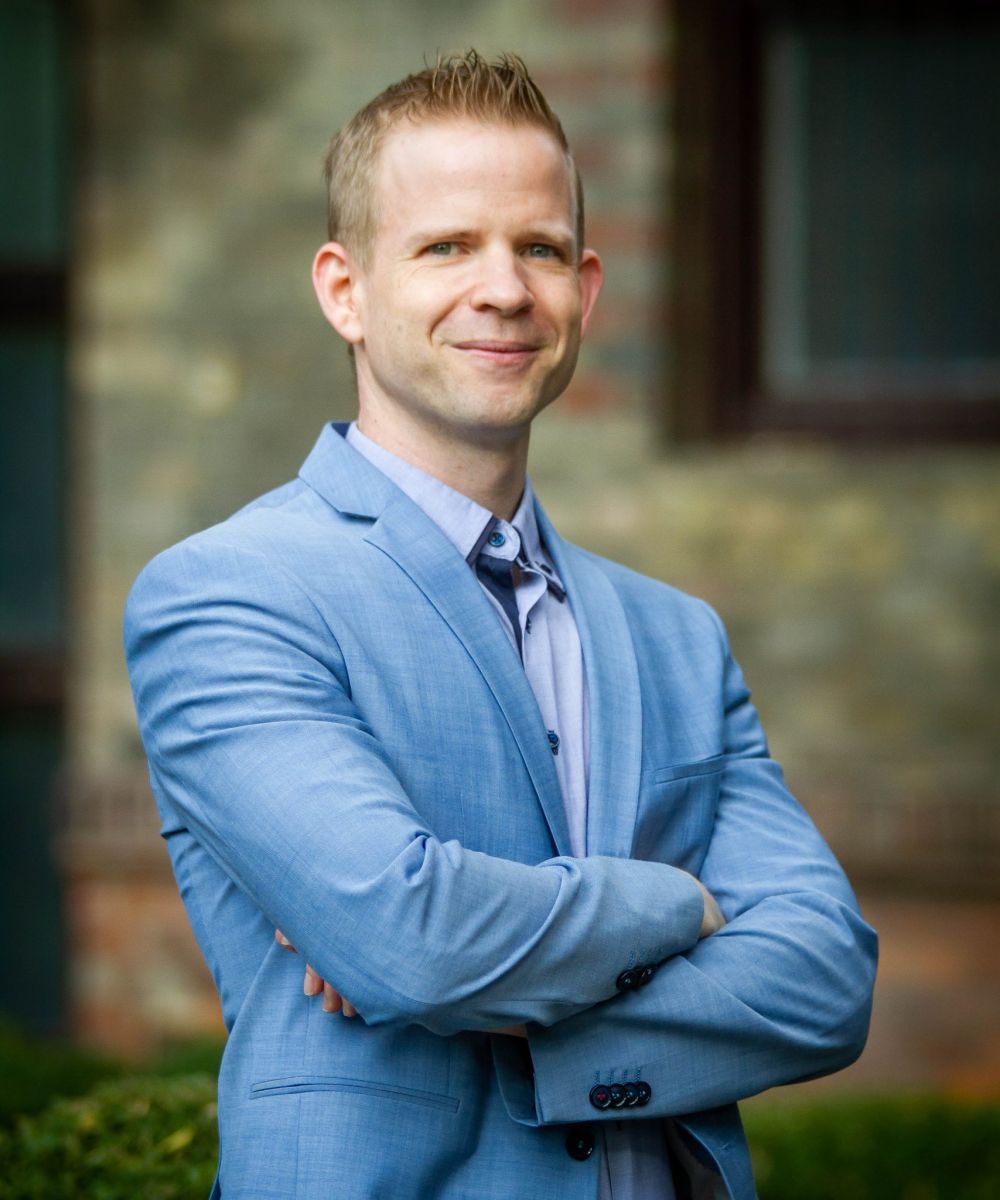
Dr. Jerzsele Ákos
Antimicrobial resistance (AMR) in animal health from the One Health perspectiveÁTE Department of Pharmacology and Toxicology
Vice rector for Science and Innovation, Head of Department Associate Professor.Research field:
• antibiotic resistance, antibiotic synergism
• pharmacokinetic / pharmacodynamic analyzes for antibiotics
• effectiveness measures of antibiotic alternativesFrom 2019, head of the Department of Pharmacology and Toxicology, Vice rector for science and innovation.
-
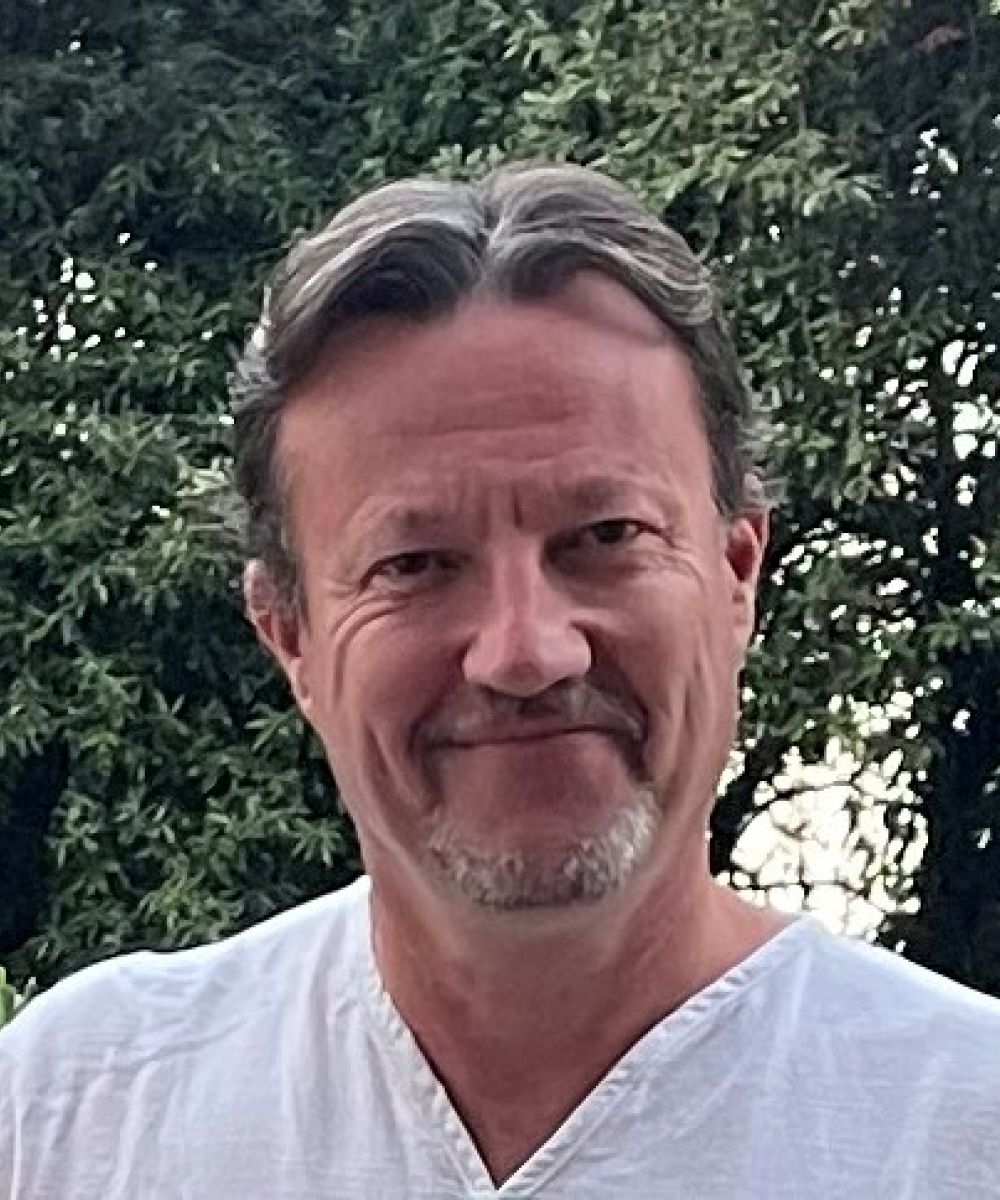
Dr. Pachinger Zoltán
Green and sustainable revolution versus economic food productionDr. Pachinger Zoltán received his MSc. in agricultural science and his PhD. in economic science from Pannon Agricultural University. After he worked as consultant at Dutch Nutreco for 7 years, he joined Austrian Feix-Nutrition and representing several worldwide known companies at feed additive business more than 20 years. His PhD. thesis was focusing on economic pork production chain. Cost efficiency and optimization of animal product output are still in focus of daily business and in his research works as well. His own company Agri-Coins Ltd. has been established for product development and innovation, especially for improving energy metabolization and antibiotic free production.
-
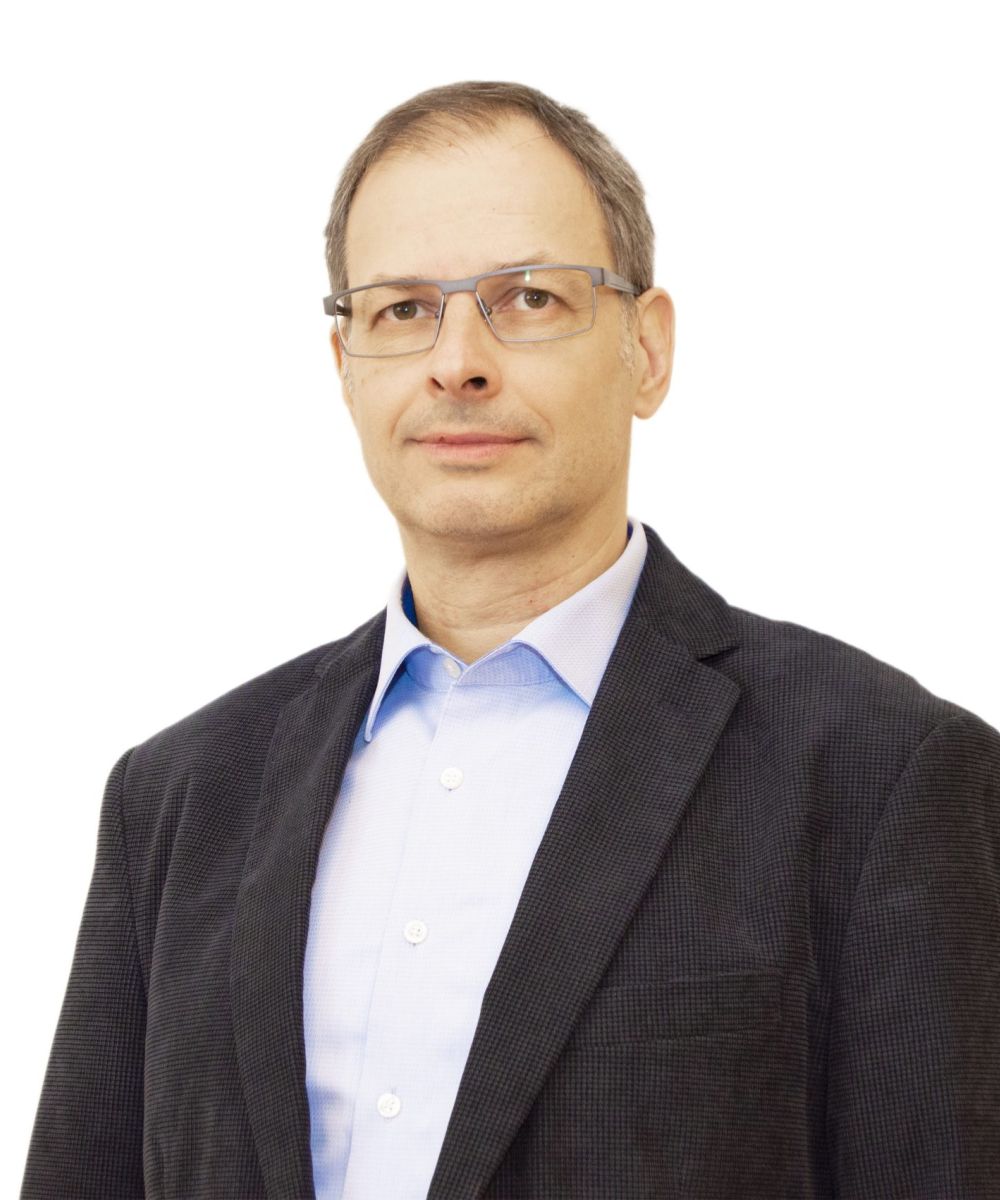
Potori Norbert
Sustainable animal husbandry: different aspects of reducing antibiotic useDr Norbert Potori, head of the Agricultural Directorate of the AKI Institute of Agricultural
Economics Nonprofit Kft. Areas of expertise: EU and Hungarian agricultural policy, economics of
agricultural sectors, market analysis, policy and market impact assessments. -
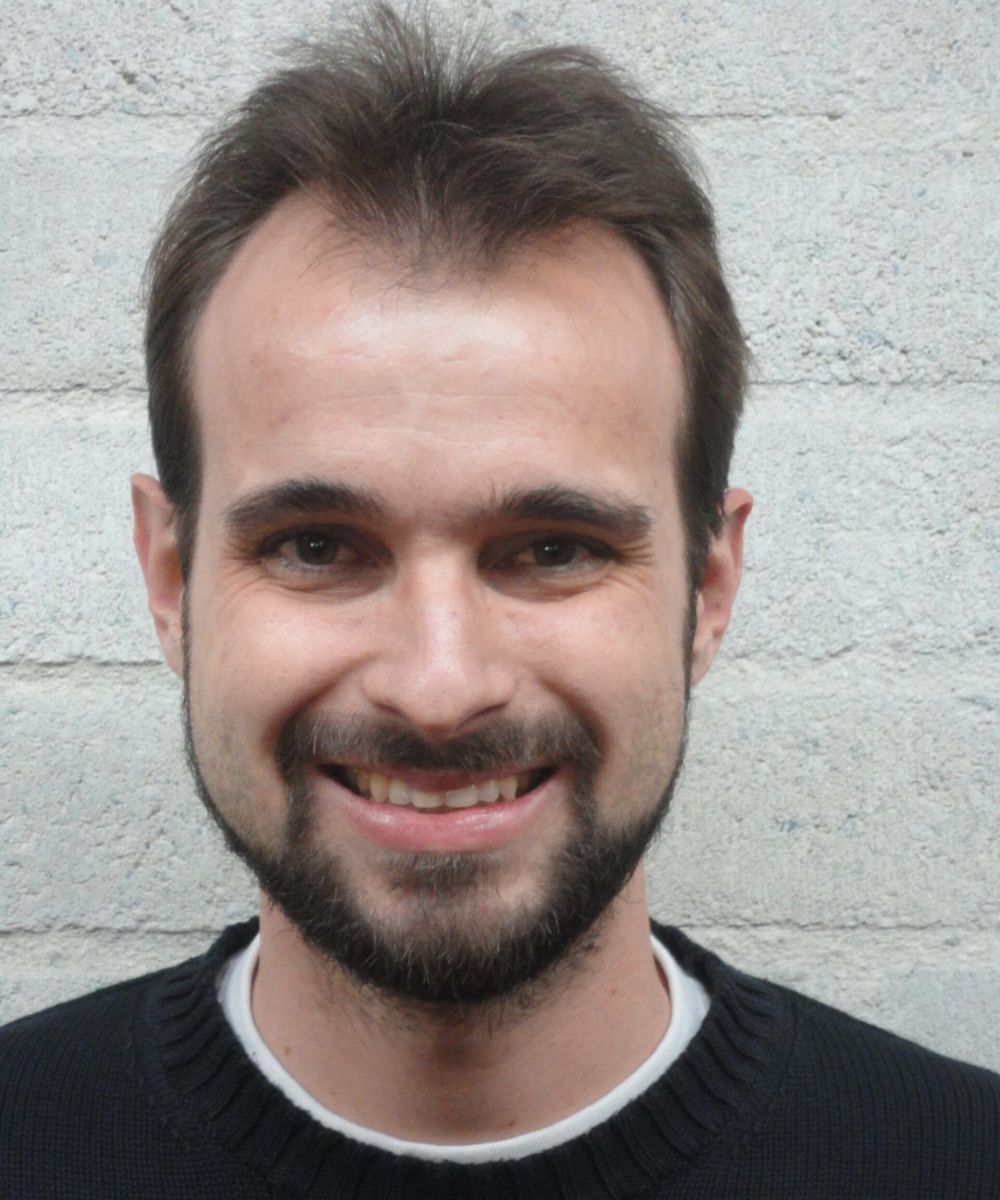
Piero Agostini
Modifying protein and energy levels in broiler diets to improve performance, carcass traits, feed cost savings and litter qualityPiero Agostini has more than 10 years of experience in the international feed business. In 2013 he finished his PhD in nutrition and management at Autonomous University of Barcelona in Spain.
In 2013 he joined Schothorst Feed Research, a renowned independent research institute in the Netherlands where he was mainly involved in research and consultancy in poultry nutrition, assisting feed manufactures and integrators in Europe and Asia during 10 years. Agrofeed was one of the companies he was giving consultancy to from 2017 till 2022.
In October 2022 he moved to New Zealand to join Tegel Foods Ltd as animal nutritionist. Tegel is the biggest poultry producer in New Zealand. At Tegel he is responsible for designing the feed specifications for all broilers and breeders, optimizing diets day-to-day at mills as raw materials vary in quality and nutritional content. Working with the procurement and planning teams to develop buying strategies – including raw material selection, origin choice, etc. He is also involved with the R&D trial program, developing trials in association with other stakeholders. -
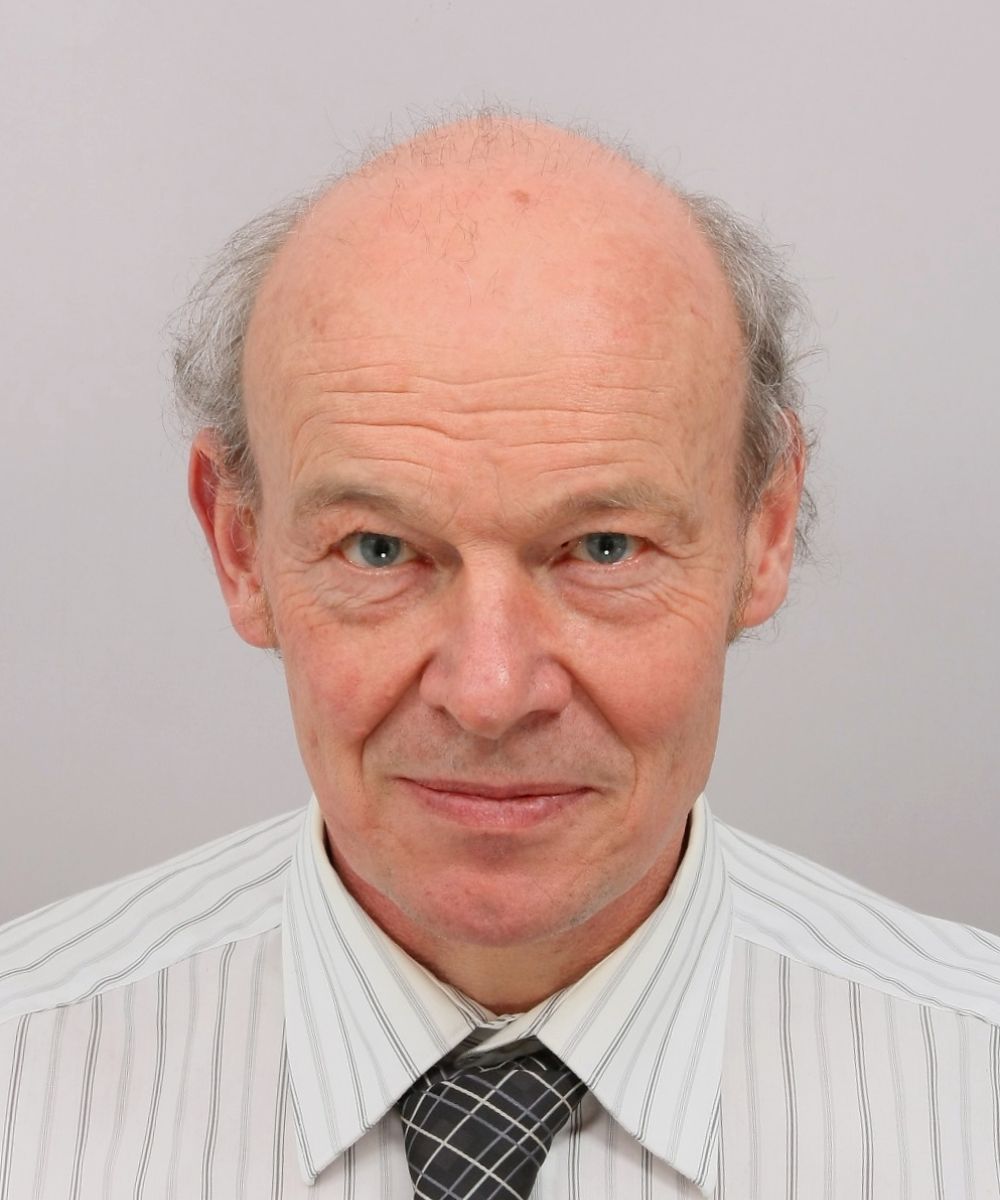
Jannes Doppenberg
Gut health in pigs: how to achieve and maintain itJannes Doppenberg has 25 years of experience in the international feed business. He obtained his MSc degree from Wageningen University in the Netherlands. He majored in Animal Nutrition and Animal Physiology with minors in Agronomy and Pedagogy. Part of his studies were conducted at the Ohio Agricultural Research Center in the U.S. during an internship. In the U.S. he obtained his Doctor of Philosophy degree in Holistic Nutrition from Clayton College of Natural Health.
He managed a vitamin and mineral premix business in the U.S. for 15 years. Upon returning to the Netherlands Jannes joined Schothorst Feed Research an independent research organization focusing on evaluating the nutritional value of feedstuffs and feed additives for the international feed industry. He was mainly involved with research and consultancy for the feed industry because of his practical experience. From 2021 he has started his own independent consultancy service.
15 éven keresztül irányította az Egyesült Államokban a vitaminok és ásványi anyagok premix üzletágát. Visszatérve Hollandiába, Jannes csatlakozott a Schothorst Feed Research független kutatási szervezethez, amelynek feladata a takarmányok és takarmány-adalékanyagok tápértékének felmérése a nemzetközi takarmányipar számára. Gyakorlati tapasztalatai miatt főleg a takarmányiparral kapcsolatos kutatással és tanácsadással foglalkozott. 2021-től önálló szaktanácsadói tevékenységet folytat.
-

Dr. Búza László
Key equations for livestock farmers – what we need to know and understand!In 1992, he obtained a doctoral degree in veterinary medicine, then from 2000 he participated in several post-graduate courses and obtained certified specialist of veterinary medicine: Specialist in Food Hygiene, State Veterinary Medicine and Infectious diseases, Clinics- and Small Animal Medicine and Swine Health Management. In 2020, he obtained a PhD in pig herd health farm management. District veterinarian, then head veterinarian of the slaughterhouse branch. He is the director of the National Food Inspection Institute, then the director of the Borsod-Abaúj-Zemplén County Food Chain Safety and Animal Health Directorate. After that, he is the professional director of MSD Animal Health’s Central European pig business and, from 2022, the commercial and professional development director of Topigs Norsvin Central Europe. From September 2022, part-time lecturer, university assistant professor at the University of Veterinary Medicine in Budapest. In addition to general food hygiene, he is an instructor of pig meat inspection, meat inspection of infectious diseases and the prevention of treatment of zoonotic – food-borne – pig diseases in Hungarian and English classes. Initiator, and one of the founders, speakers of the Swine Technical College for vet and agry Students.
-
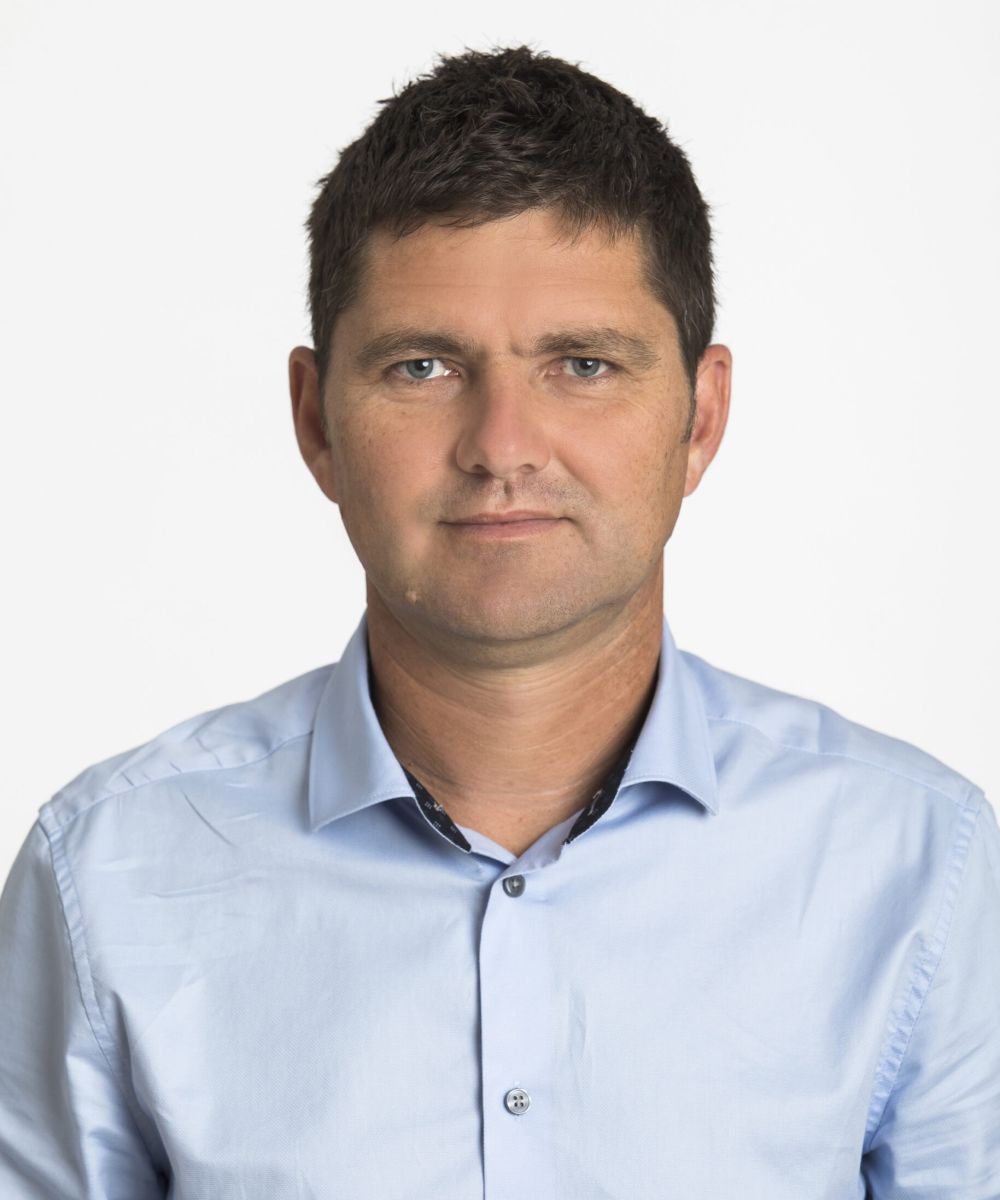
Botond Alpár
Vivaferm – gives nutritional valueBotond Alpár has 25 years of experience in the feed business. Graduated from Szent István University, Hungary in 1997, in the same year he started his career at Agribrands Europe Hungary (Purina), later Cargill as a pig product manager.
He joined Agrofeed Ltd. in 2002 and worked as a pig nutritionist until August 2019, developed feed formulas and nutrition programs for local and foreign pig producers. Since September 2019, he has been the leader of the R&D team dealing with other animal species as well. He also supervises feed experiments in the company’s own swine test farm at Lovászpatona, Vivafarm Ltd.
-
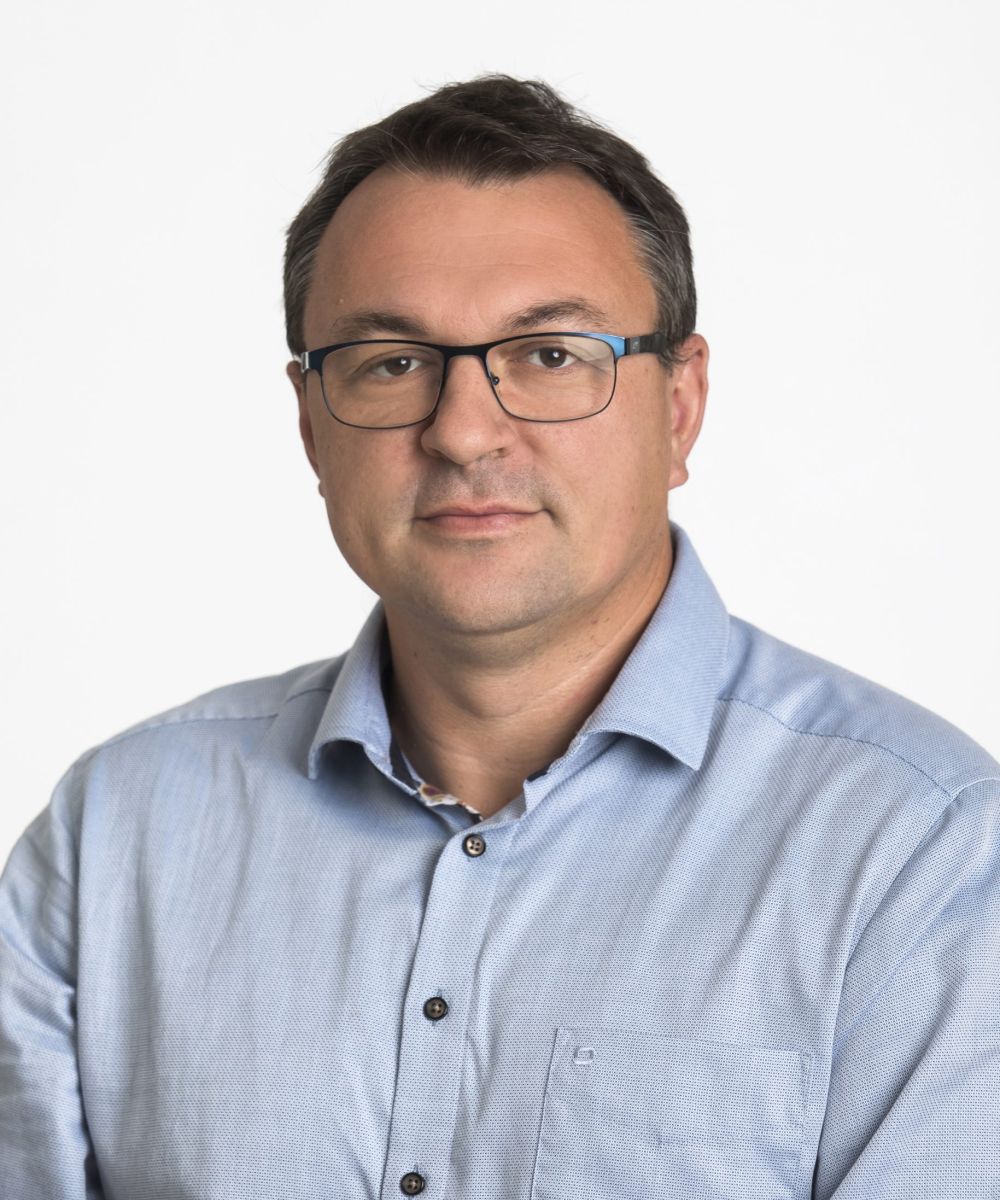
Ferenc Lankó
How can we make profit on our fatteners with challenges of the 21st centuryHe is the commercial manager of the pig business of Agrofeed Kft. He has nearly 20 years of professional experience in the field of pig feeding. He completed his degree in agricultural engineering and engineer teaching at the University of Kaposvár, and immediately entered the world of work after leaving school. His first job was at Cargill, after which he strengthened the pork team at Provimi. Agrofeed Kft. He joined Agrofeed Kft. in 2011. In addition to the Hungarian market, he is also responsible for nearly 20 other countries as a pig specialist and feed consultant. -
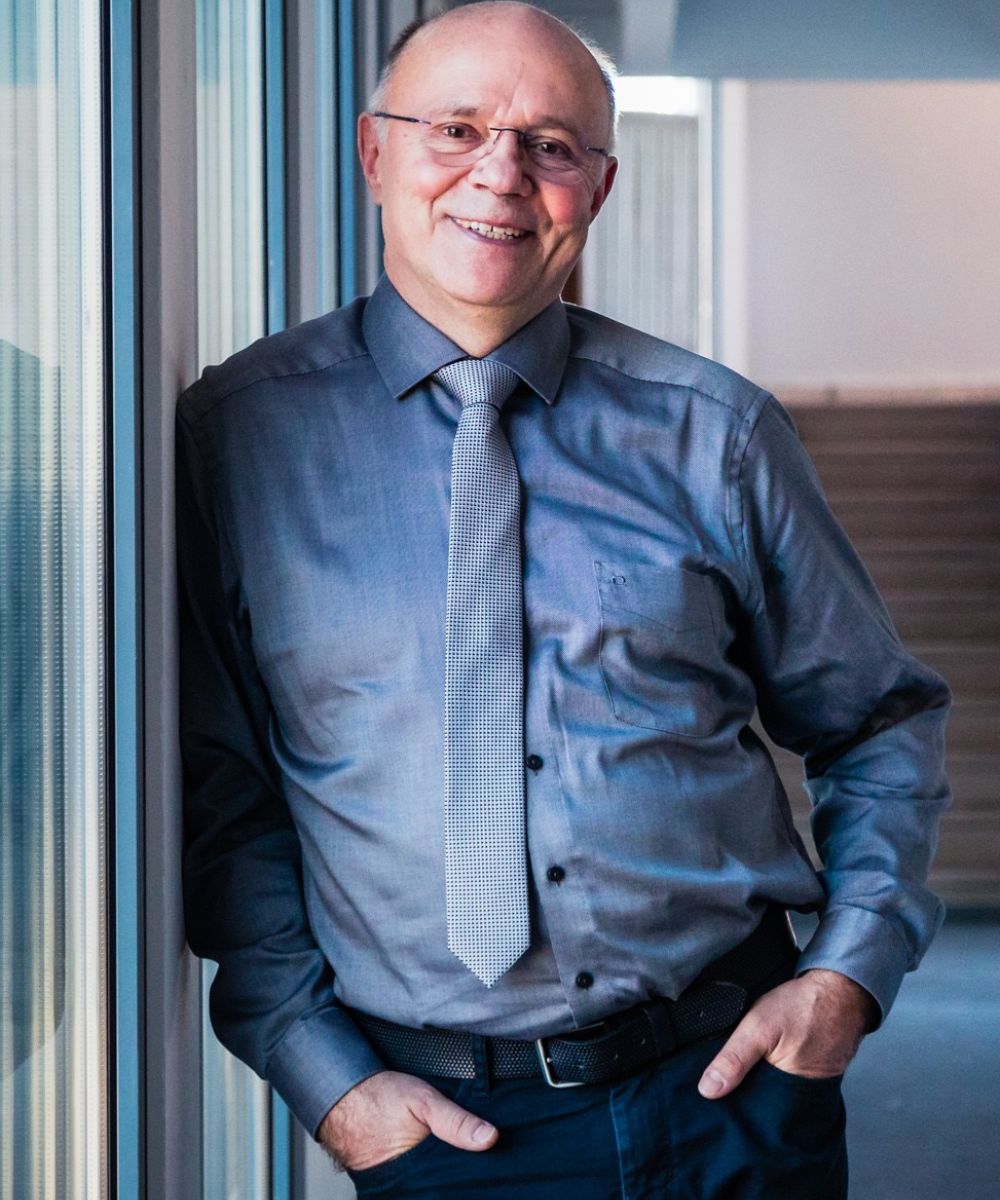
Dr. Hanula Barna
Renewable? Sustainable? Affordable? Key issues of energy supply.Dr. Barna Hanula was born in Budapest in 1958.
1983 Mechanical engineer BME
1984 Hungarian autocross champion, BBK 2nd place (Peace-Friendship Cup, championship of socialist countries)
1983-89 Institute of Transportation Sciences, then BME Department of Motor Vehicles, in parallel with Péter Havassy a private enterprise for the production of racing engines.
1987-89 Chief Technical Inspector of the Hungarian Automobile and Motorsport Association.
1989-2011 Dr Schrick GmbH, Germany. Development engineer, head of development department, managing director 1999-2011. Development of engines for German, American, Brazilian, Russian, Chinese, Japanese and other manufacturers.
Major projects: development of Ford 4.0 V6, Ford Rocam 1.0-1.6 L engines, ultralight aircraft diesel engine for the Bundeswehr, development of Bugatti Veyron 16.4
2001 PhD degree, Application of ceramic valves in internal combustion engines
2011-23 Audi Hungaria, Head of Scientific Relations
2011- Széchenyi István University, habilitated associate professor.
2012-14 Head of Audi Hungaria Vehicle Engineering Department Group,
2015-22 Dean of Audi Hungaria Faculty of Automotive Engineering
Current research area: renewable and alternative energies, as well as the energetic application of hydrogen.
-
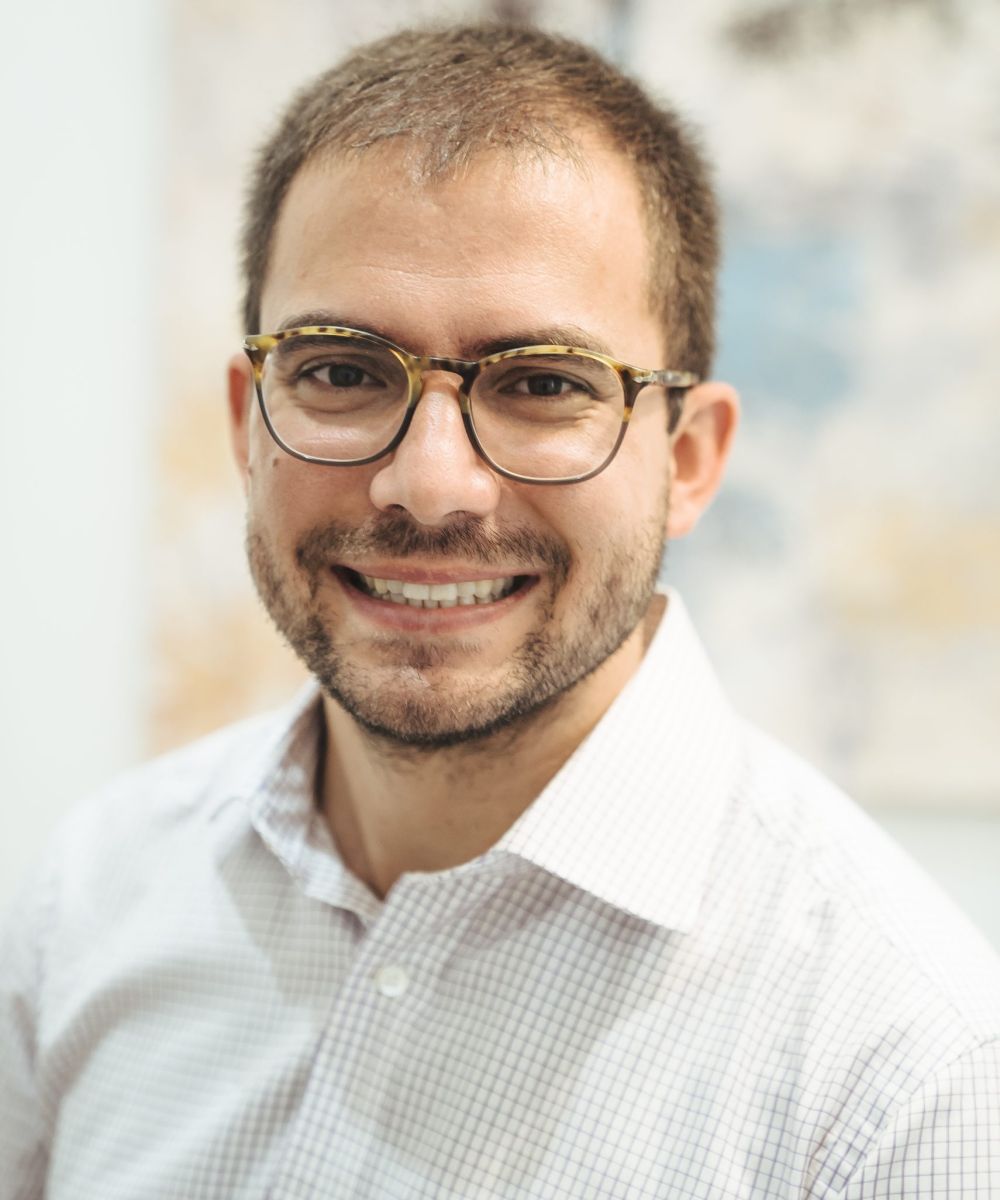
Roger Davin
Alternative sources of protein for broiler diets: how to optimally use them in the context of antibiotic-free diets?Roger Davin is a senior poultry nutrition consultant and product manager at Schothorst Feed Research (SFR) in the Netherlands.
Roger got his degrees on veterinary medicine, animal science master and animal nutrition PhD at the Universitat Autònoma de Barcelona (Spain). During his PhD he did three internships at UC Davis (California), at the Freie Universität Berlin (Germany) and at Novus International (MO, USA). Afterwards he did a postdoc in Missouri (USA) at the University of Missouri and Novus International for three years. In June 2017, Roger moved back to Europe and joined SFR as a monogastric nutrition researcher. Since 2019 he started getting involved in (poultry) nutrition consultancy activities within SFR. Currently Roger is consultant for companies in the Netherlands, Europe and Asia.
